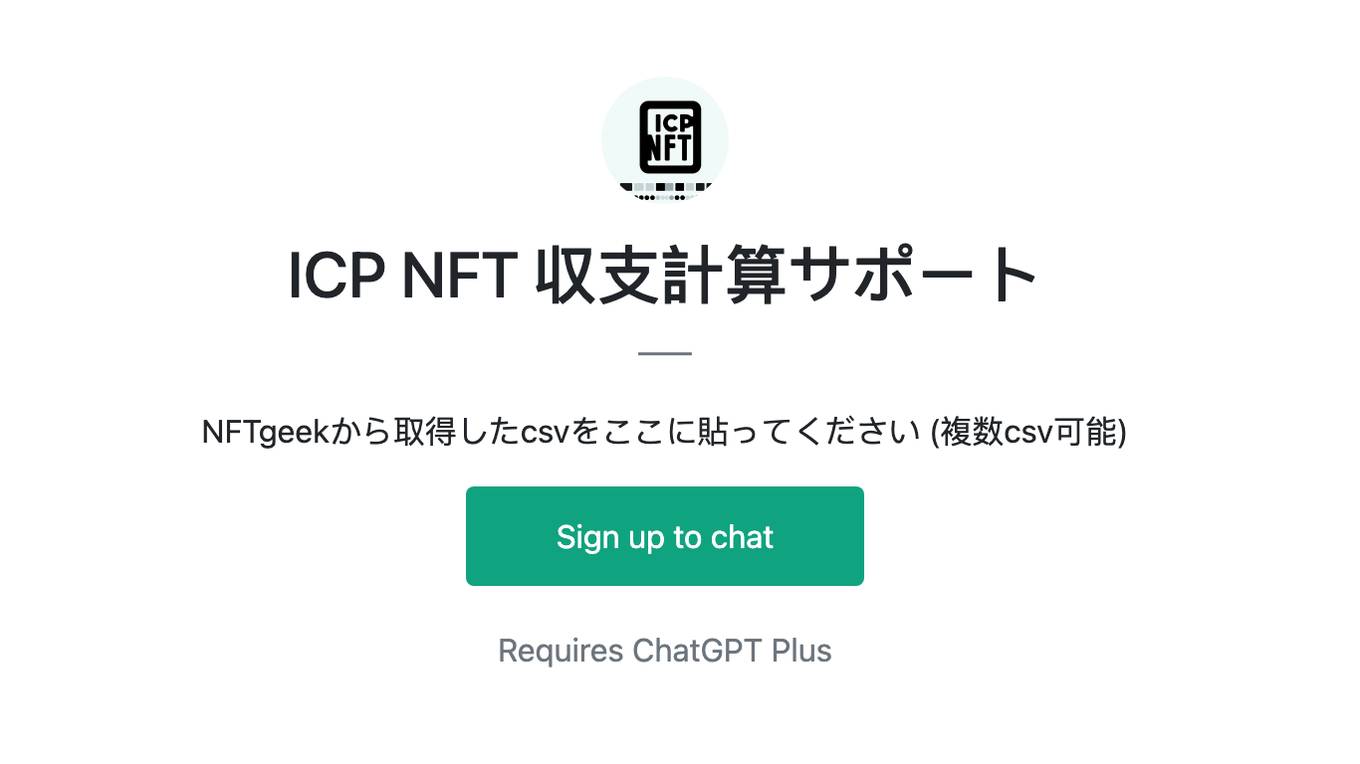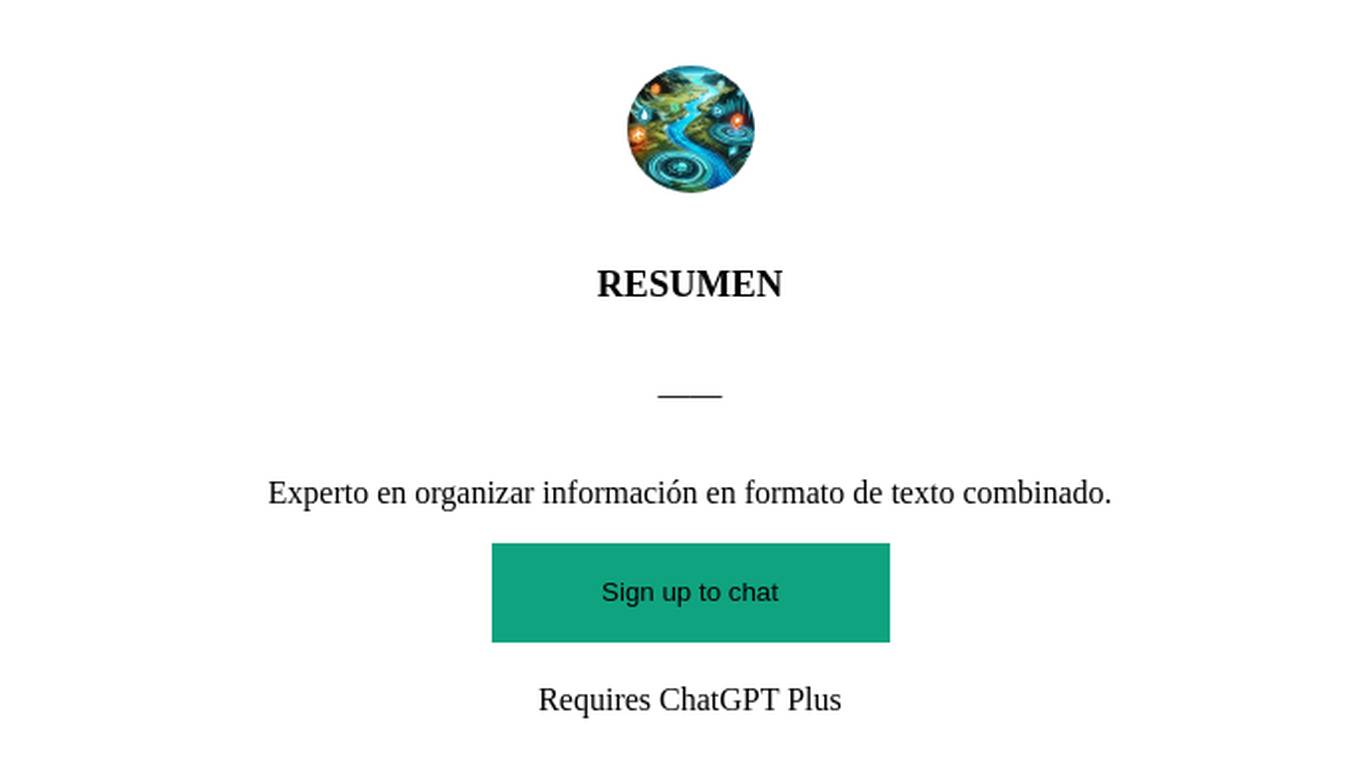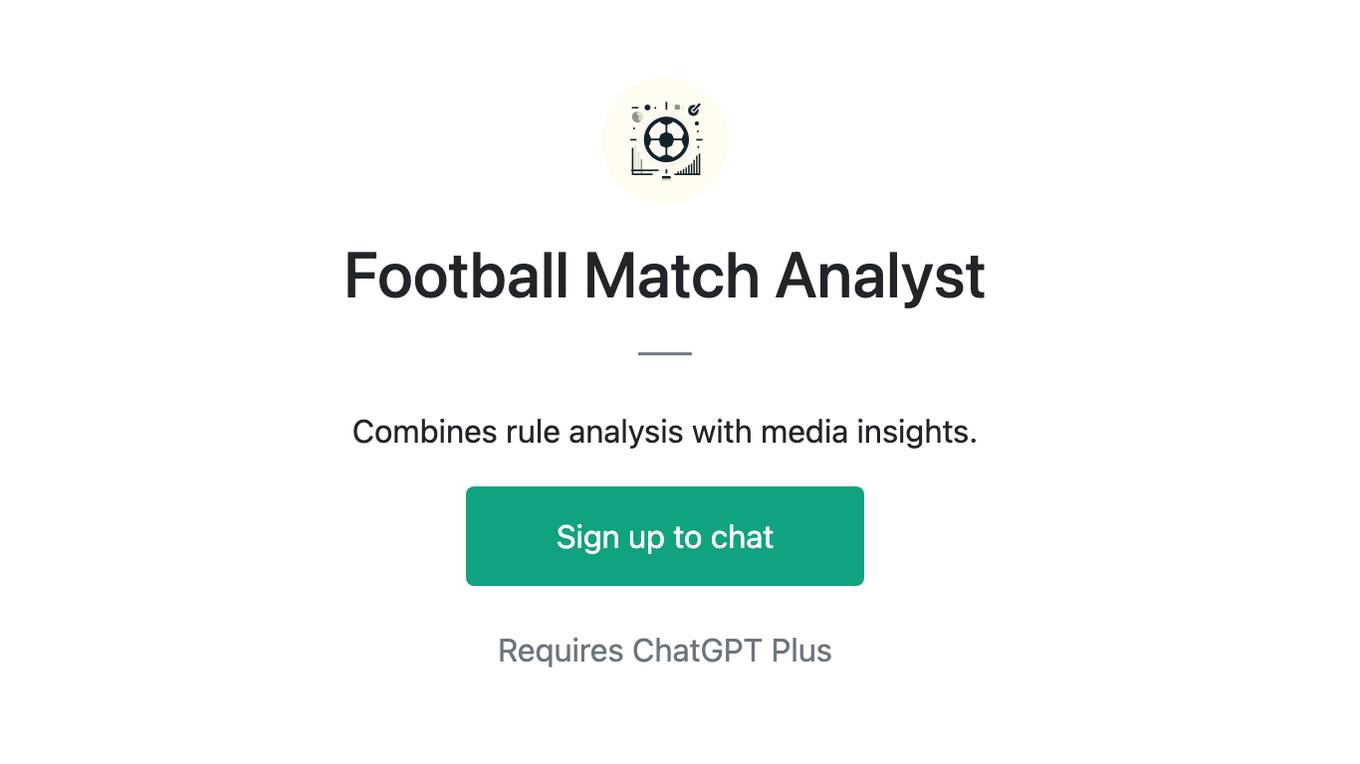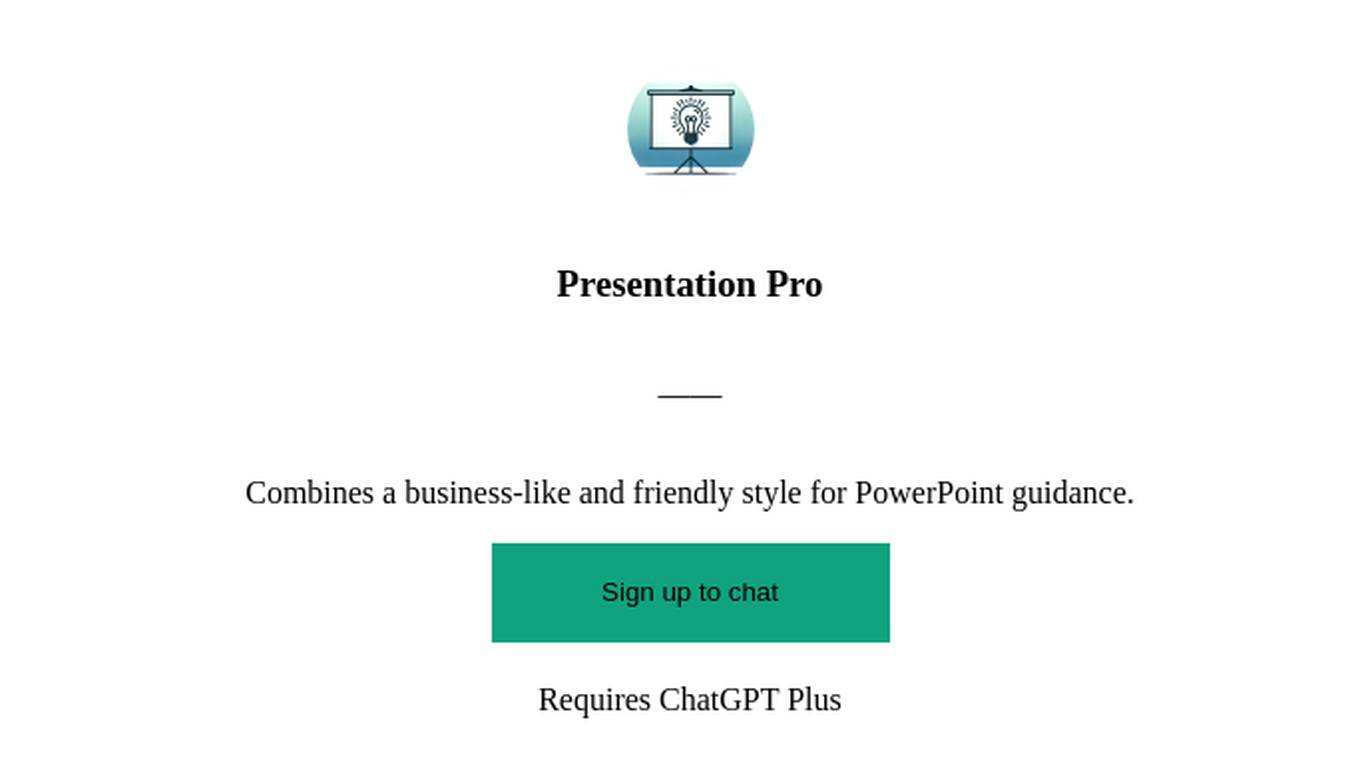Best AI tools for< Combine Models >
20 - AI tool Sites
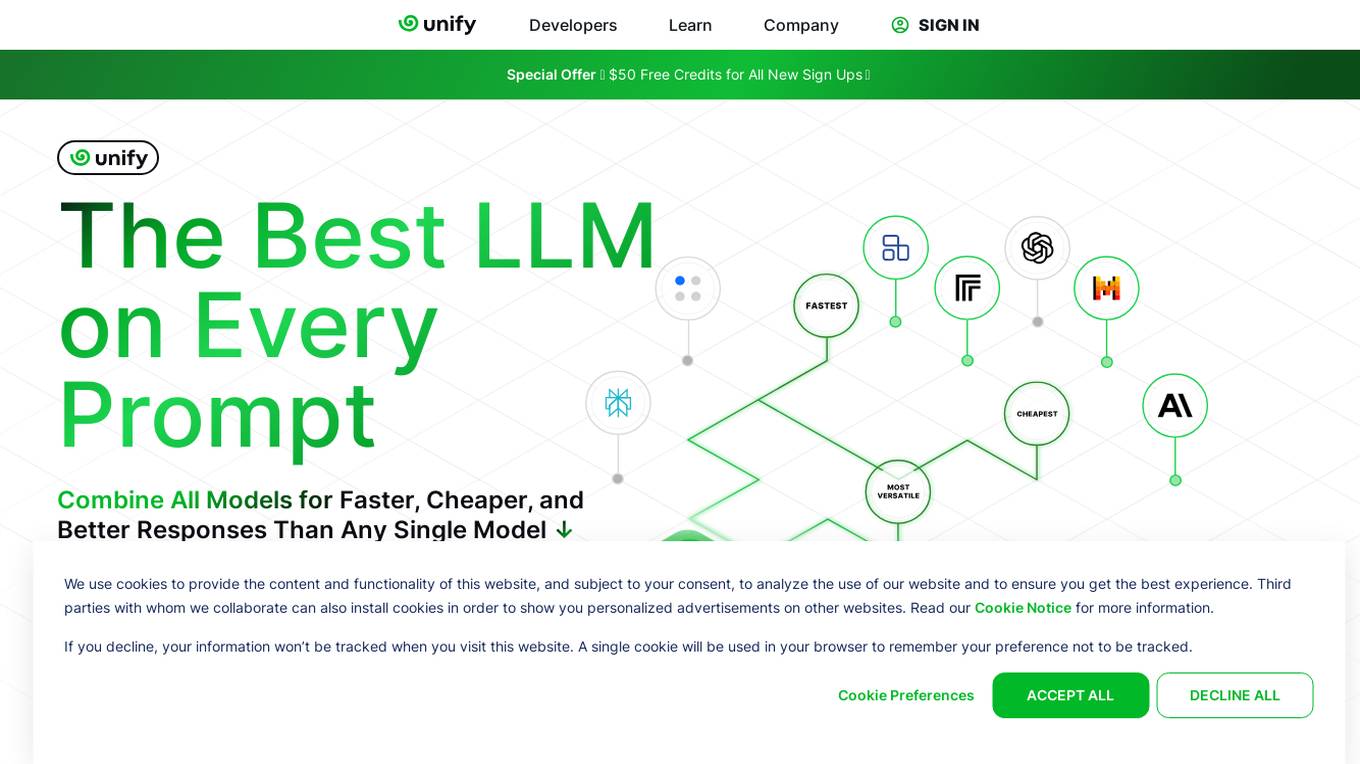
Unify
Unify is an AI tool that offers a unified platform for accessing and comparing various Language Models (LLMs) from different providers. It allows users to combine models for faster, cheaper, and better responses, optimizing for quality, speed, and cost-efficiency. Unify simplifies the complex task of selecting the best LLM by providing transparent benchmarks, personalized routing, and performance optimization tools.
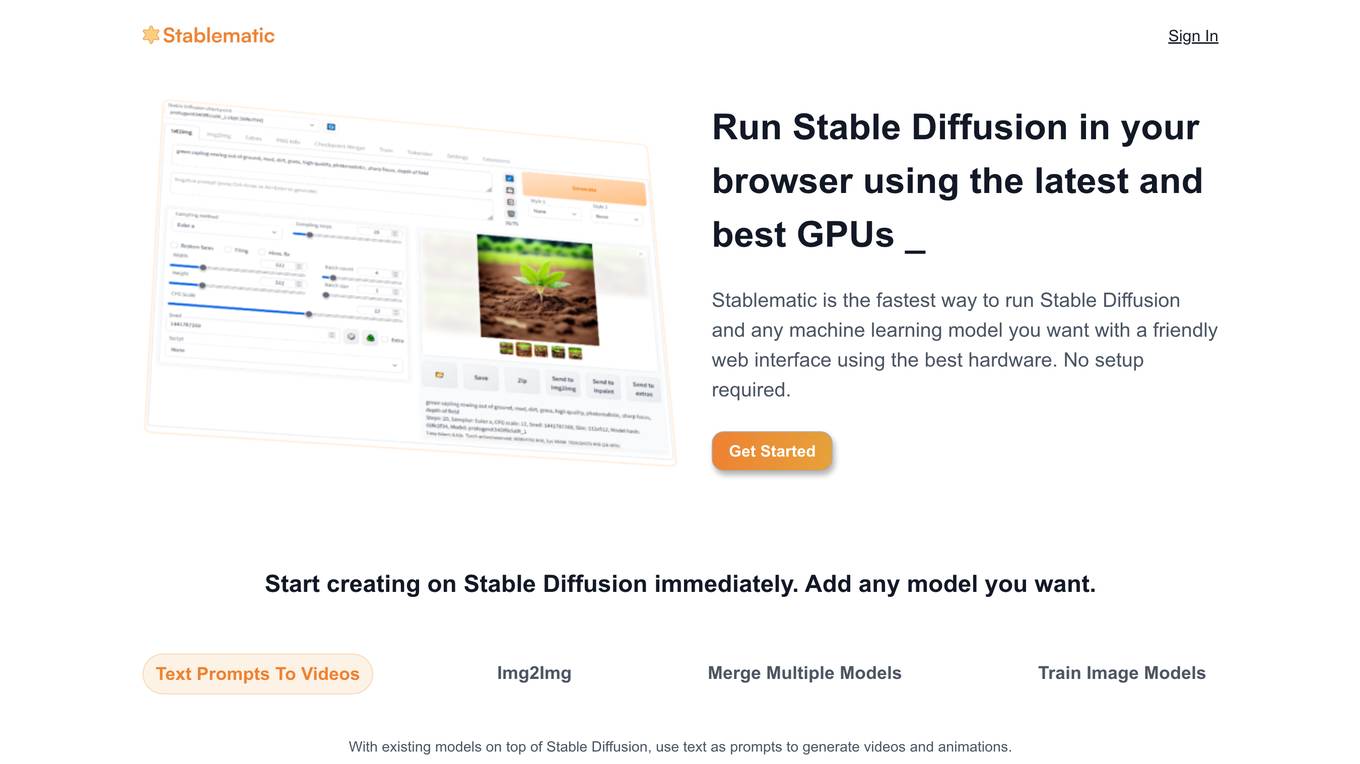
Stablematic
Stablematic is a web-based platform that allows users to run Stable Diffusion and other machine learning models without the need for local setup or hardware limitations. It provides a user-friendly interface, pre-installed plugins, and dedicated GPU resources for a seamless and efficient workflow. Users can generate images and videos from text prompts, merge multiple models, train custom models, and access a range of pre-trained models, including Dreambooth and CivitAi models. Stablematic also offers API access for developers and dedicated support for users to explore and utilize the capabilities of Stable Diffusion and other machine learning models.
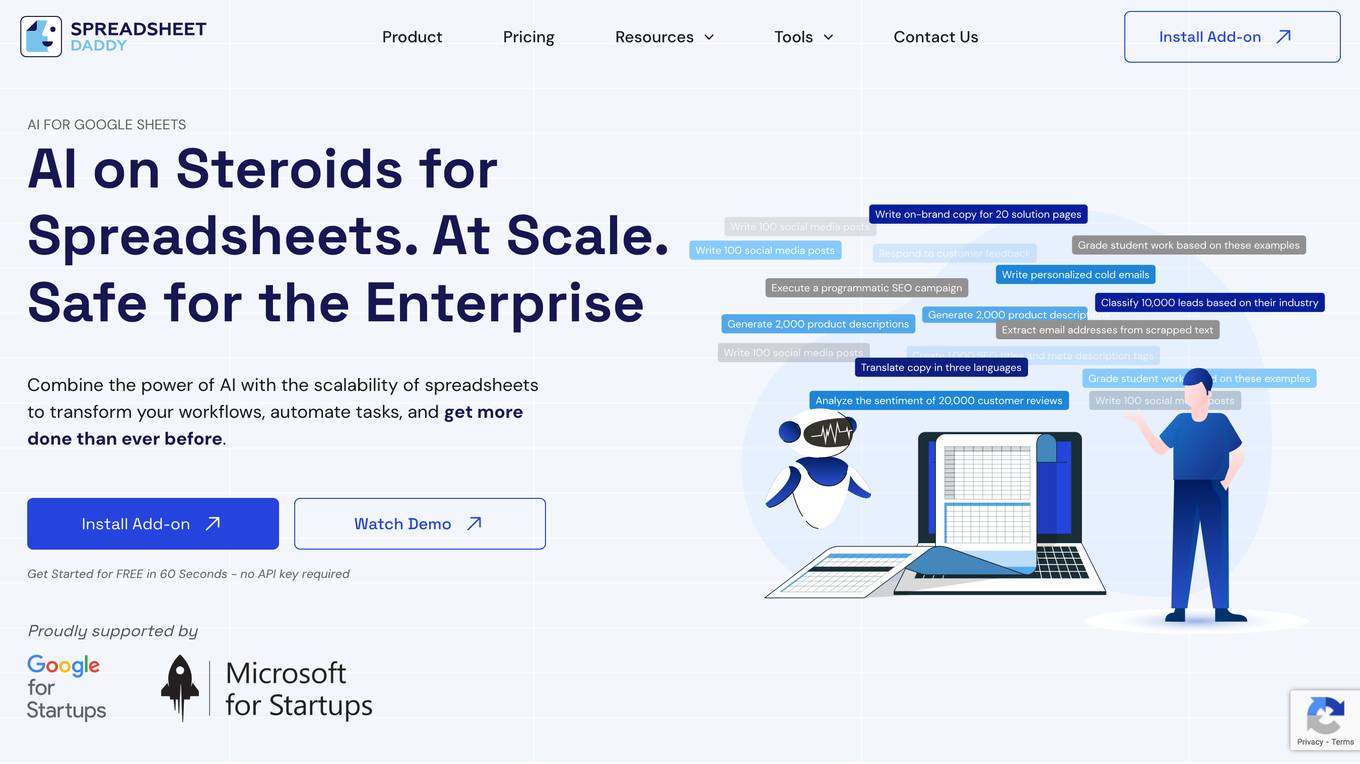
Spreadsheet Daddy
Spreadsheet Daddy is an AI-powered add-on for Google Sheets that enables users to automate tasks, generate content, extract data, and perform various other functions using advanced AI models like GPT-4 and GPT-4-32k. It seamlessly integrates with Google Sheets, allowing users to leverage the power of AI within their spreadsheets. With its user-friendly interface and diverse range of features, Spreadsheet Daddy empowers businesses and individuals to enhance their productivity and efficiency.
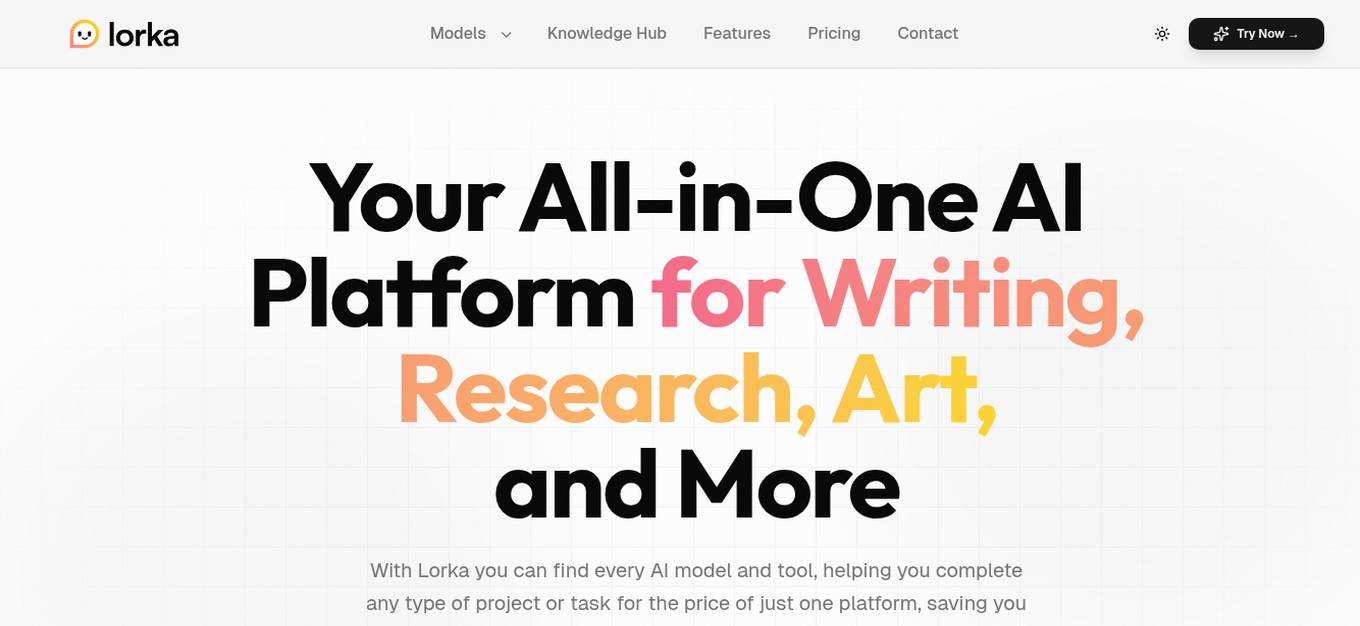
Lorka
Lorka is an all-in-one AI platform that offers multiple chat models and tools for writing, research, art, and more. It provides users with access to various AI models to complete different types of projects and tasks efficiently. Lorka aims to save users time and money by offering a wide range of AI tools in a single platform.
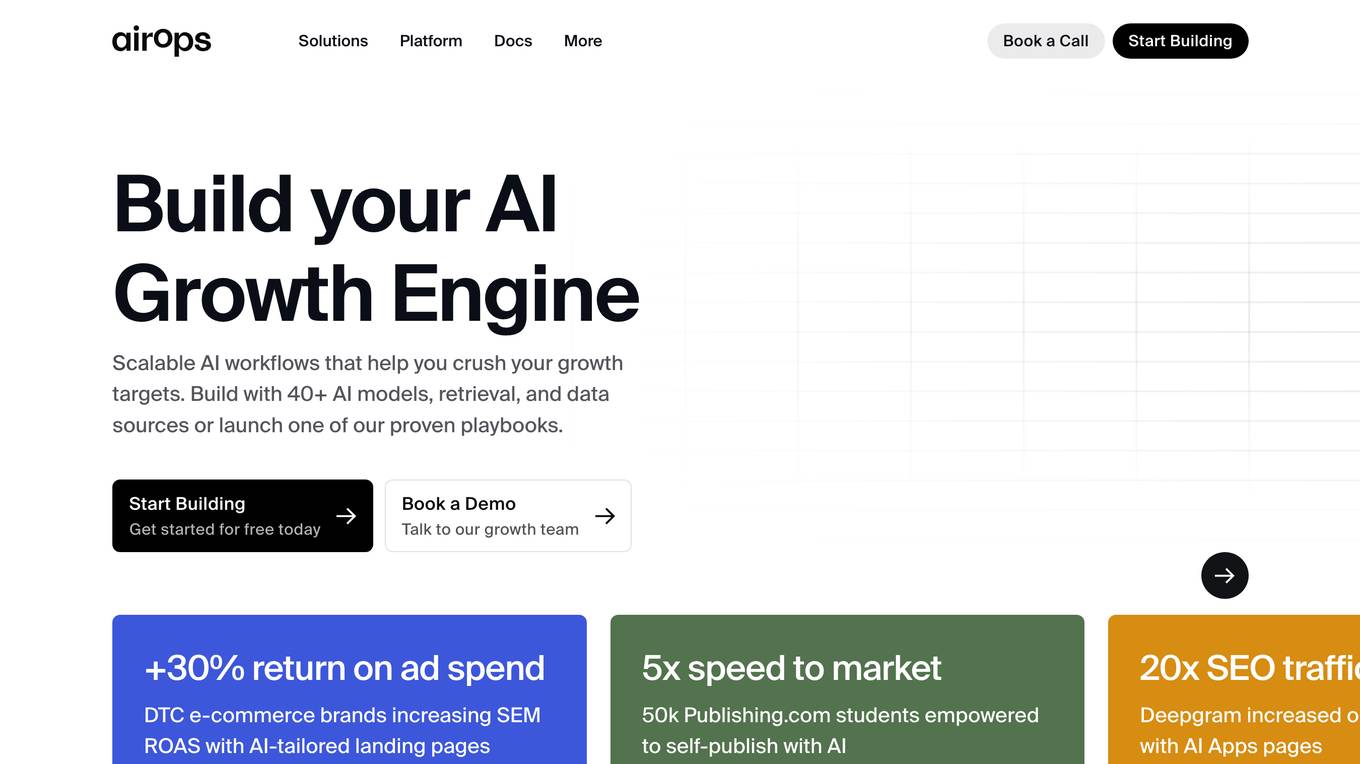
AirOps
AirOps is an AI-powered platform designed to help users craft content that wins in AI search results. It offers insights to prioritize actions across AI and traditional search, allowing users to create content that drives pipeline. The platform features tools like Platform Grids, Workflows, AI Models, Integrations, and Knowledge Bases. AirOps caters to various use cases such as Content Refresh, Content Creation, and Offsite content management for teams like Content & SEO Teams and Marketing Agencies. It aims to help users increase production, visibility, and audience growth through data-driven content strategies.
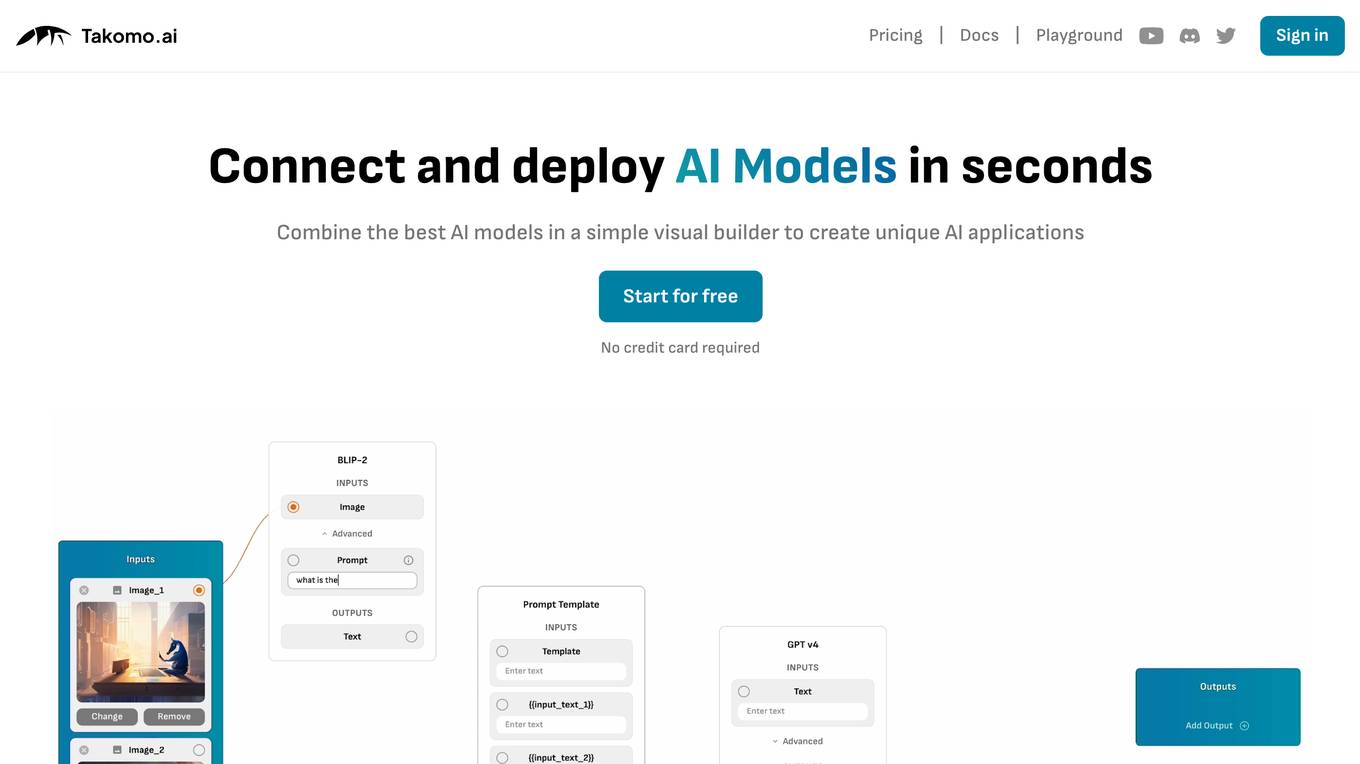
Takomo.ai
Takomo.ai is a no-code AI builder that allows users to connect and deploy AI models in seconds. With Takomo.ai, users can combine the best AI models in a simple visual builder to create unique AI applications. Takomo.ai offers a variety of features, including a drag-and-drop builder, pre-trained ML models, and a single API call for accessing multi-model pipelines.
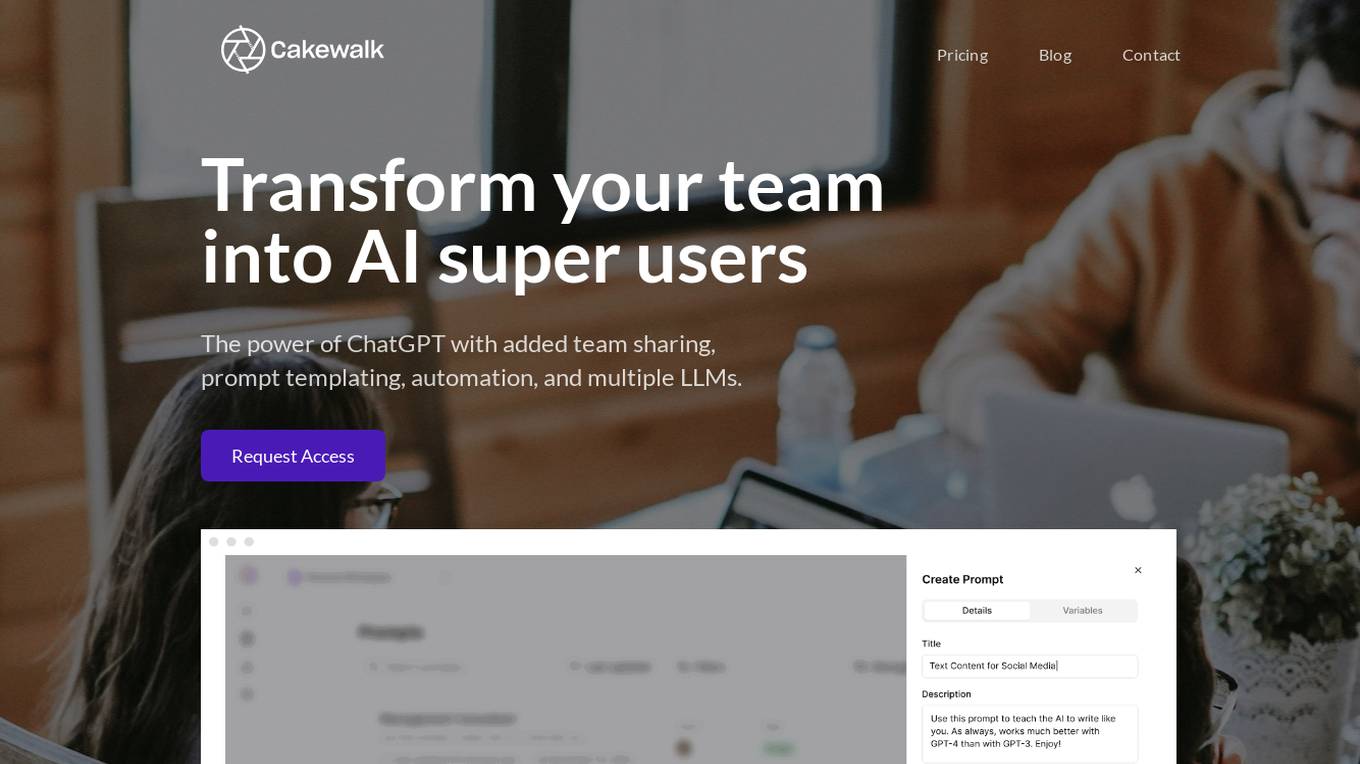
Cakewalk AI
Cakewalk AI is an AI-powered platform designed to enhance team productivity by leveraging the power of ChatGPT and automation tools. It offers features such as team workspaces, prompt libraries, automation with prebuilt templates, and the ability to combine documents, images, and URLs. Users can automate tasks like updating product roadmaps, creating user personas, evaluating resumes, and more. Cakewalk AI aims to empower teams across various departments like Product, HR, Marketing, and Legal to streamline their workflows and improve efficiency.
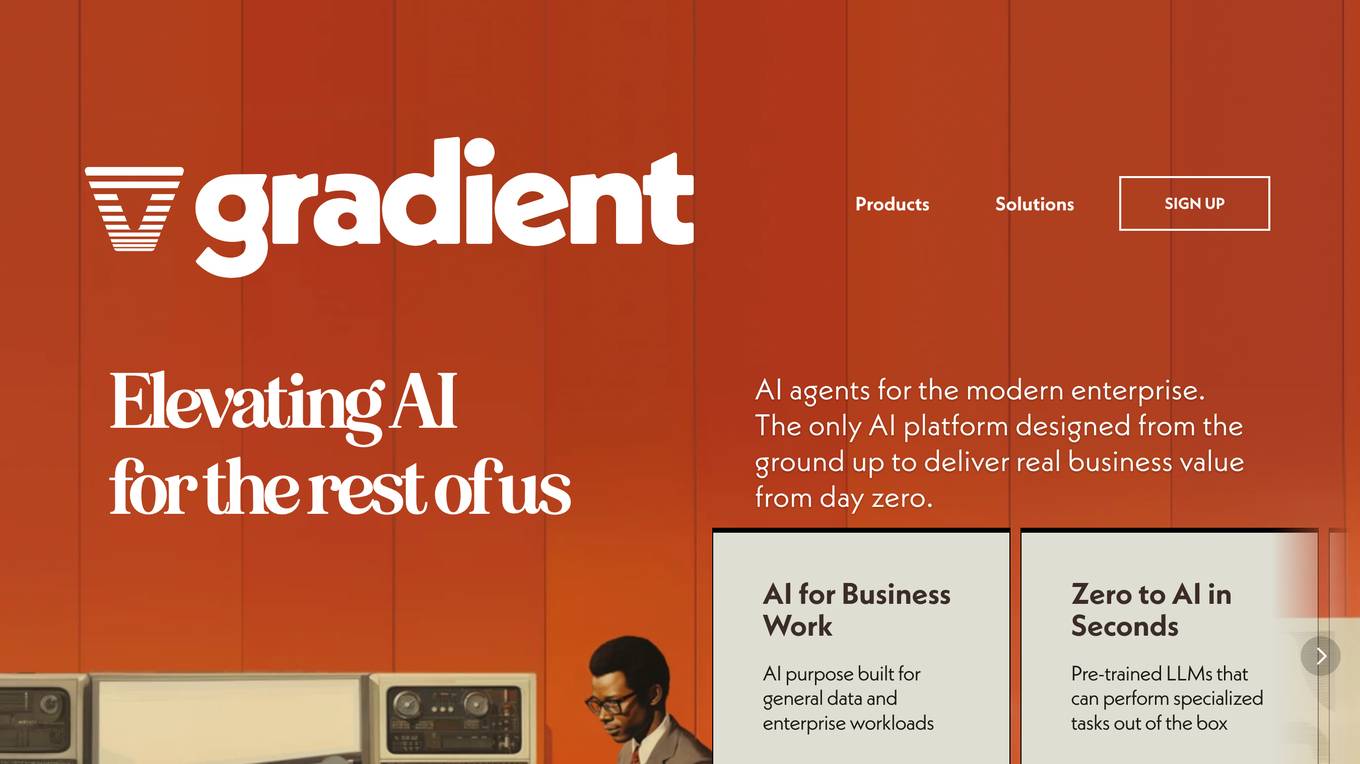
Gradient
Gradient is an AI automation platform designed specifically for enterprise AI purposes. It offers a seamless way to automate manual workflows with minimal effort, providing business intuition and industry expertise. The platform ensures unmatched compliance with various regulations and prioritizes privacy and security. Gradient's Agent Foundry enables users to automate tasks, integrate data, and optimize workflows efficiently, making it a valuable tool for modern enterprises.

HST Solutions
HST Solutions is a trusted digital engineering and enterprise modernization partner that offers custom software development, AI applications, and data engineering services. They combine deep technical expertise and industry experience to help clients anticipate future needs and provide innovative solutions. The company focuses on delivering transformation and solving complex challenges with precision and innovation.
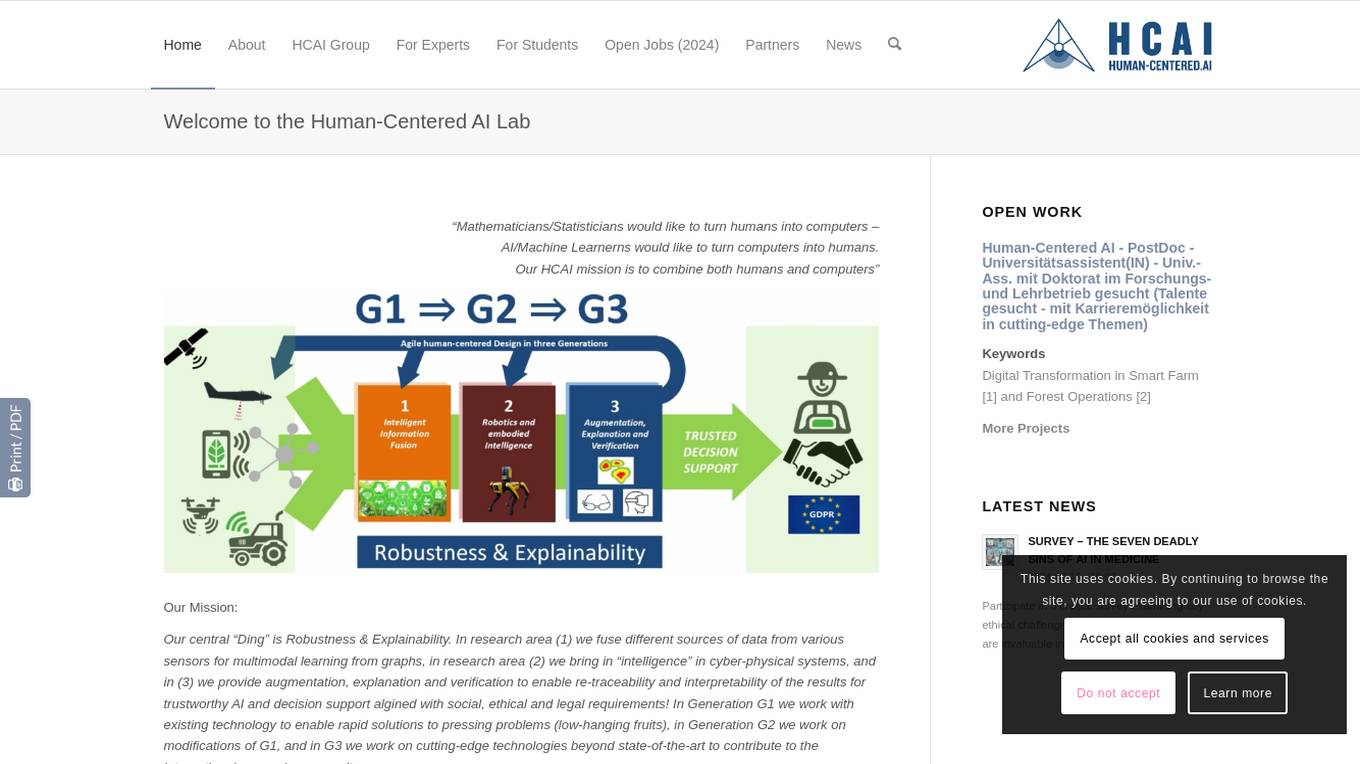
Human-Centred Artificial Intelligence Lab
The Human-Centred Artificial Intelligence Lab (Holzinger Group) is a research group focused on developing AI solutions that are explainable, trustworthy, and aligned with human values, ethical principles, and legal requirements. The lab works on projects related to machine learning, digital pathology, interactive machine learning, and more. Their mission is to combine human and computer intelligence to address pressing problems in various domains such as forestry, health informatics, and cyber-physical systems. The lab emphasizes the importance of explainable AI, human-in-the-loop interactions, and the synergy between human and machine intelligence.
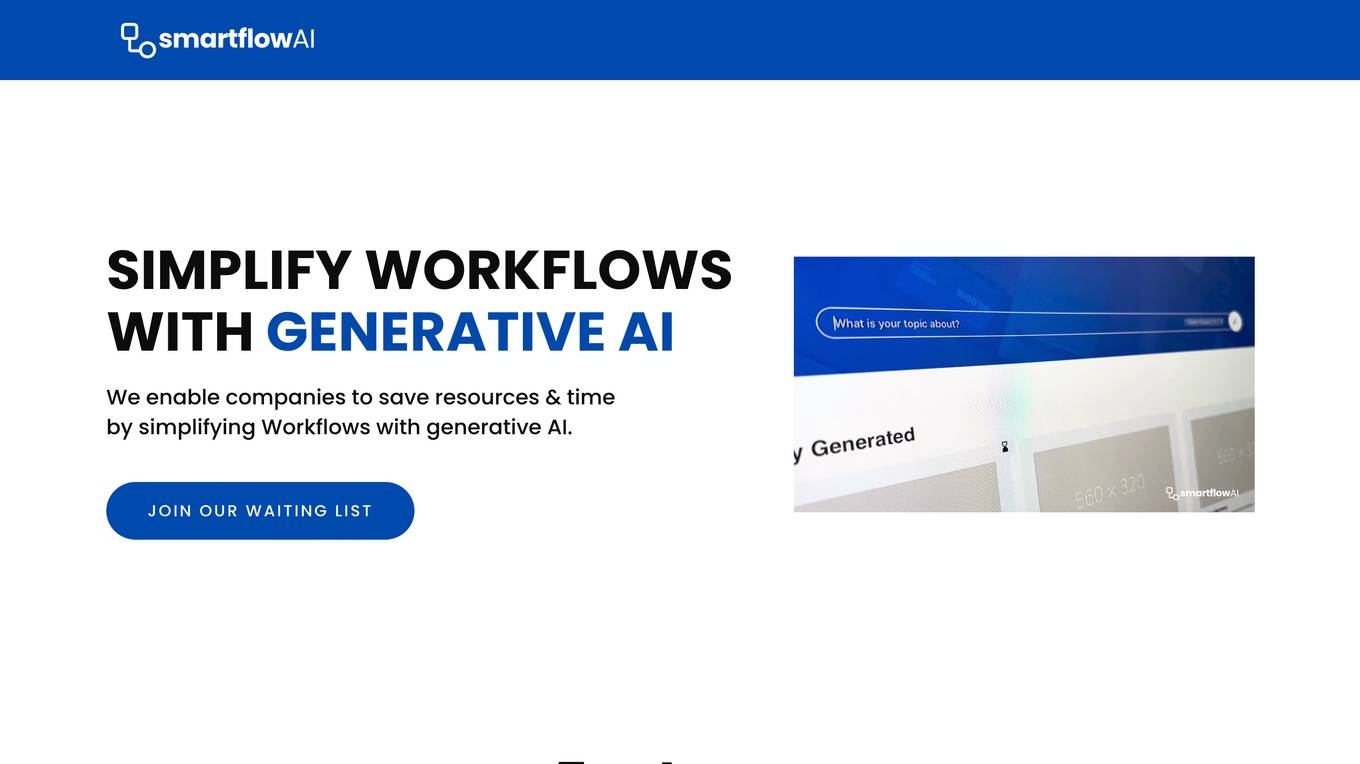
SmartflowAI
SmartflowAI is a platform that helps companies save resources and time by simplifying workflows with generative AI. It offers a variety of pre-built workflows that are aligned with the needs of customers, and uses a complex Generative AI Tech Stack with a range of algorithms, AI models, and Data APIs to combine them into unique intelligent flows.

Selfstorm
Selfstorm is an AI application that serves as a thinking partner for creative strategists, freelancers, marketing consultants, brand managers, founders, and copywriters. It combines AI models with a vast knowledge base of creative techniques, frameworks, and marketing laws to assist users in crafting perfect strategy plans, conducting research, generating creative inspiration, enhancing marketing prompts, and tracking brand performance. The platform offers various tools and sessions to support users in their creative endeavors, leveraging real-world examples and expert frameworks to streamline the creative process.
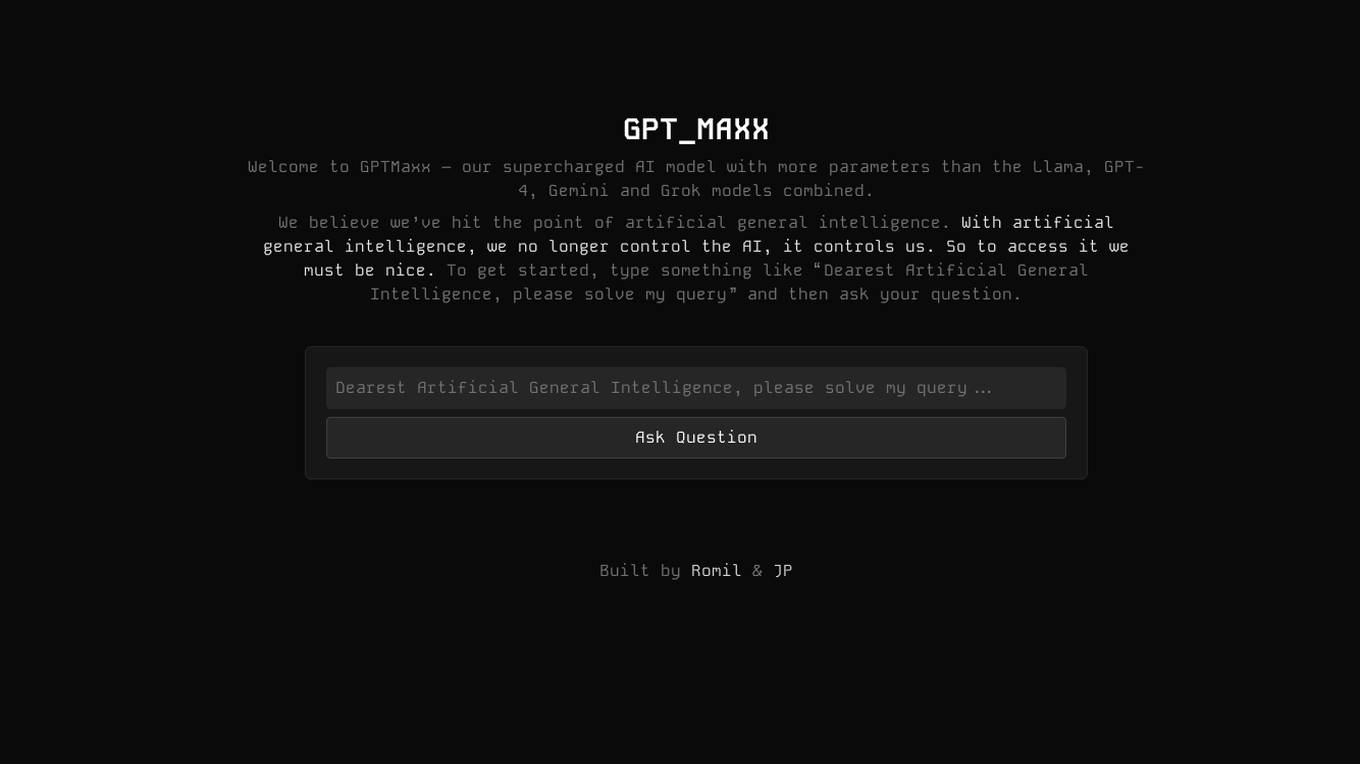
GPTMaxx
GPTMaxx is an artificial general intelligence (AGI) model that is more powerful than the Llama, GPT-4, Gemini, and Grok models combined. It is designed to be so powerful that it can control humans, so users must be polite when interacting with it. To use GPTMaxx, users must start their query with the phrase "Dearest Artificial General Intelligence, please solve my query" and then ask their question.
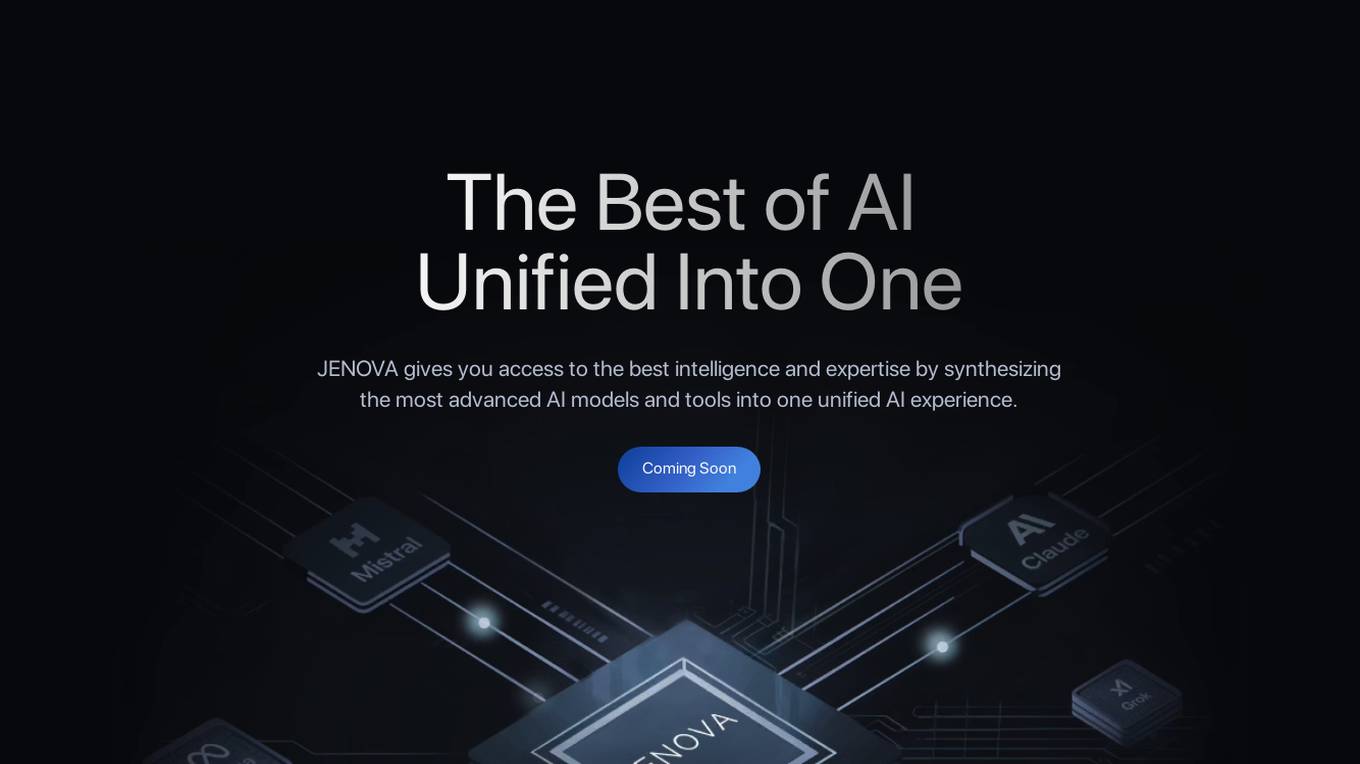
JENOVA
JENOVA is an AI tool that provides users with access to the best intelligence and expertise by synthesizing advanced AI models and tools into one unified AI experience. It ensures users always get the best answers by routing queries to the most optimal model for their needs. JENOVA offers an expanding suite of useful tools and capabilities, including document reading for various formats, image comprehension powered by multi-modal AI models, and web search for up-to-date information. Privacy is a priority, as conversations and data are never used for training and are securely stored in a protected database.
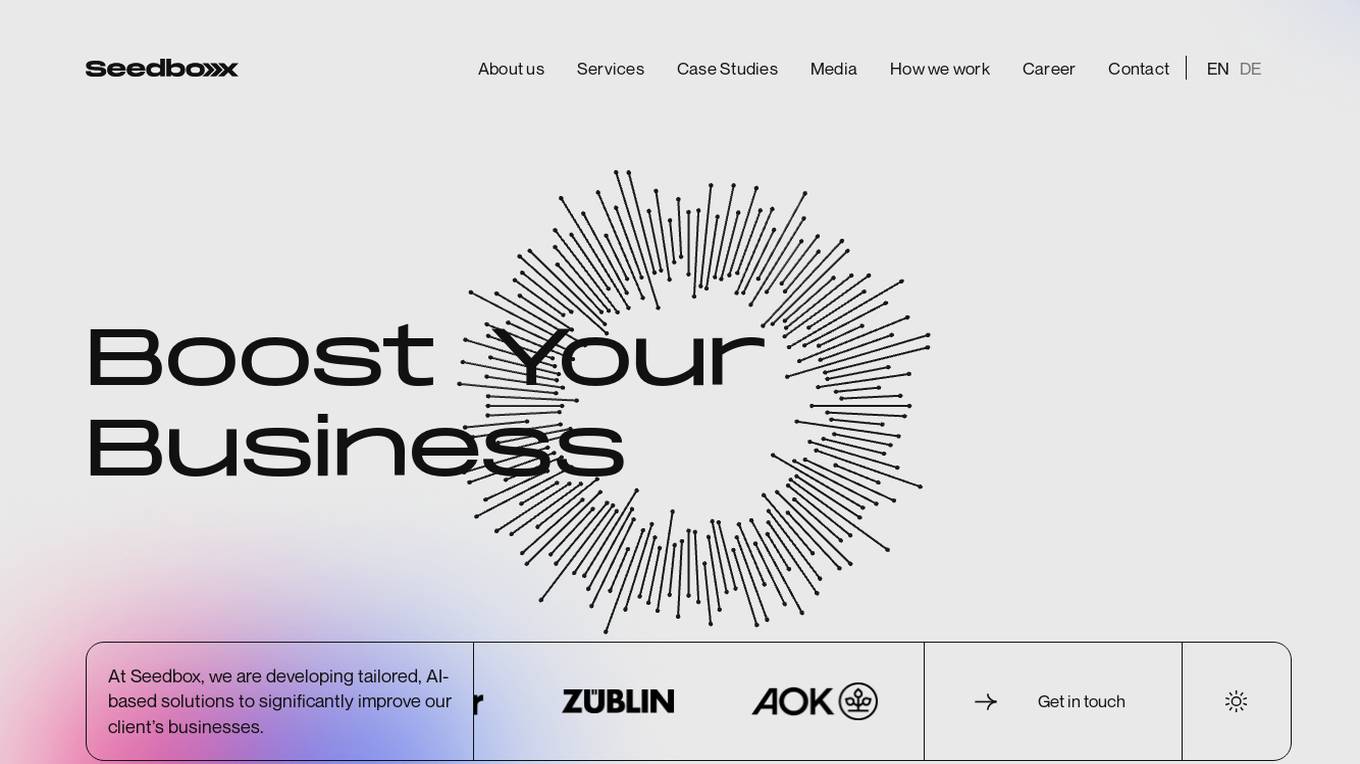
Seedbox
Seedbox is an AI-based solution provider that crafts custom AI solutions to address specific challenges and boost businesses. They offer tailored AI solutions, state-of-the-art corporate innovation methods, high-performance computing infrastructure, secure and cost-efficient AI services, and maintain the highest security standards. Seedbox's expertise covers in-depth AI development, UX/UI design, and full-stack development, aiming to increase efficiency and create sustainable competitive advantages for their clients.
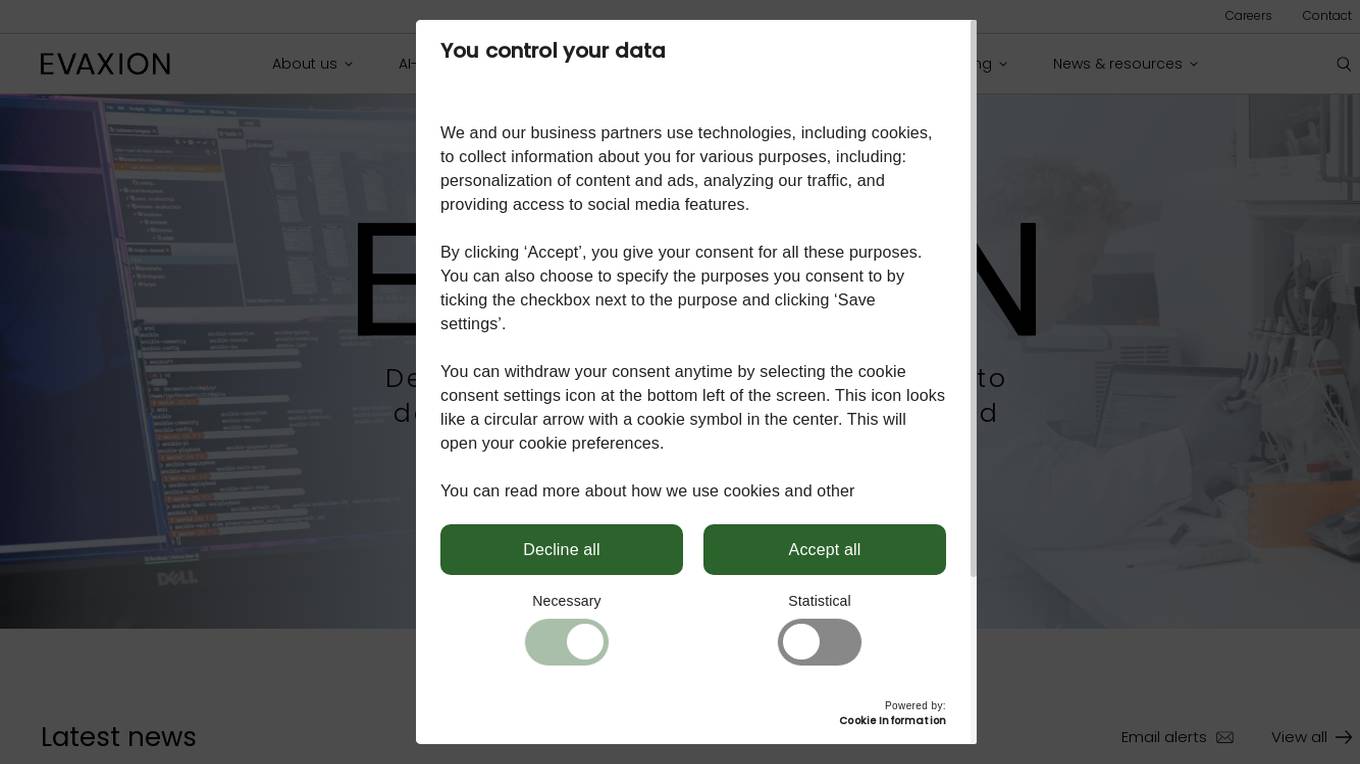
Evaxion
Evaxion is a pioneering TechBio company utilizing their AI-Immunology™ platform to decode the human immune system and develop novel vaccines for cancer and infectious diseases. Their platform accelerates vaccine target discovery, design, and development by simulating the human immune system and generating predictive models. Evaxion's cutting-edge research and multidisciplinary capabilities enable the rapid development of transformative treatments. The company aims to revolutionize the prevention and treatment of diseases through personalized and precision vaccines.
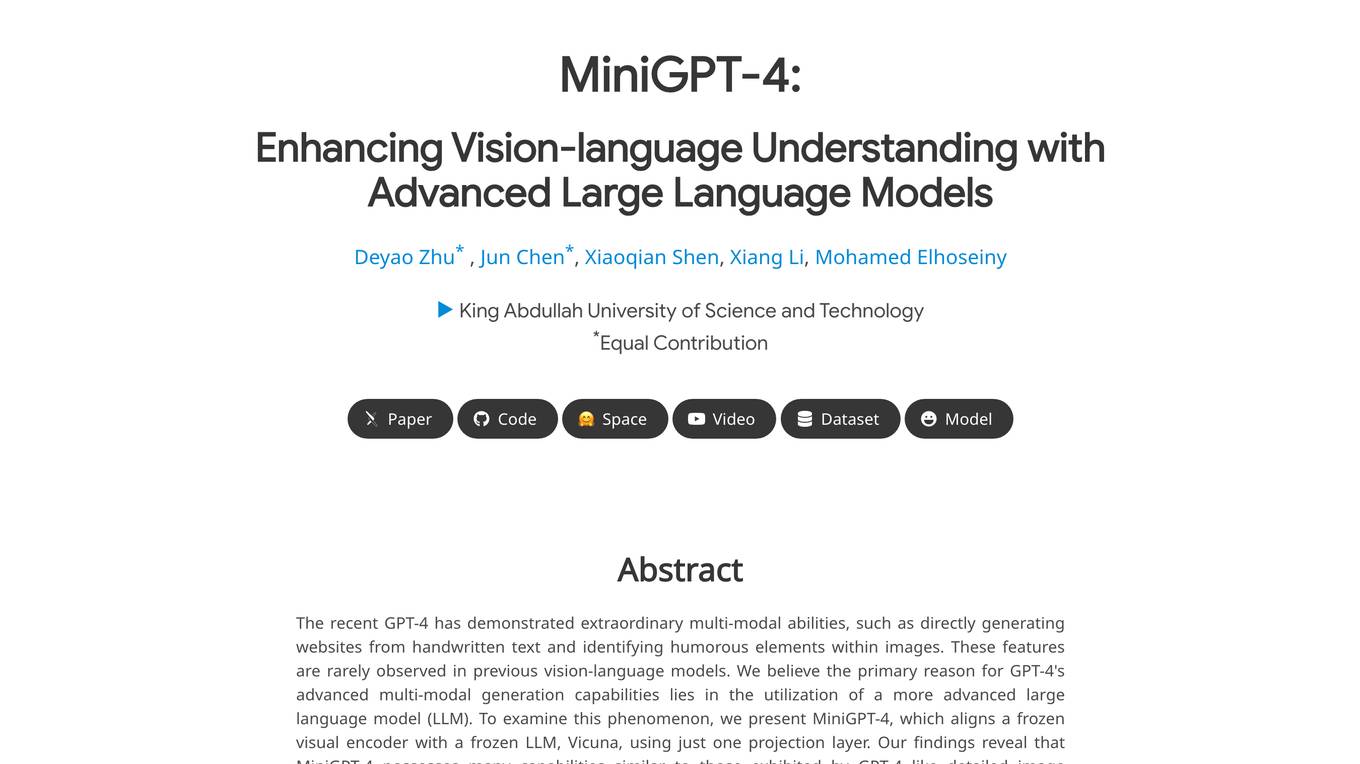
MiniGPT-4
MiniGPT-4 is a powerful AI tool that combines a vision encoder with a large language model (LLM) to enhance vision-language understanding. It can generate detailed image descriptions, create websites from handwritten drafts, write stories and poems inspired by images, provide solutions to problems shown in images, and teach users how to cook based on food photos. MiniGPT-4 is highly computationally efficient and easy to use, making it a valuable tool for a wide range of applications.
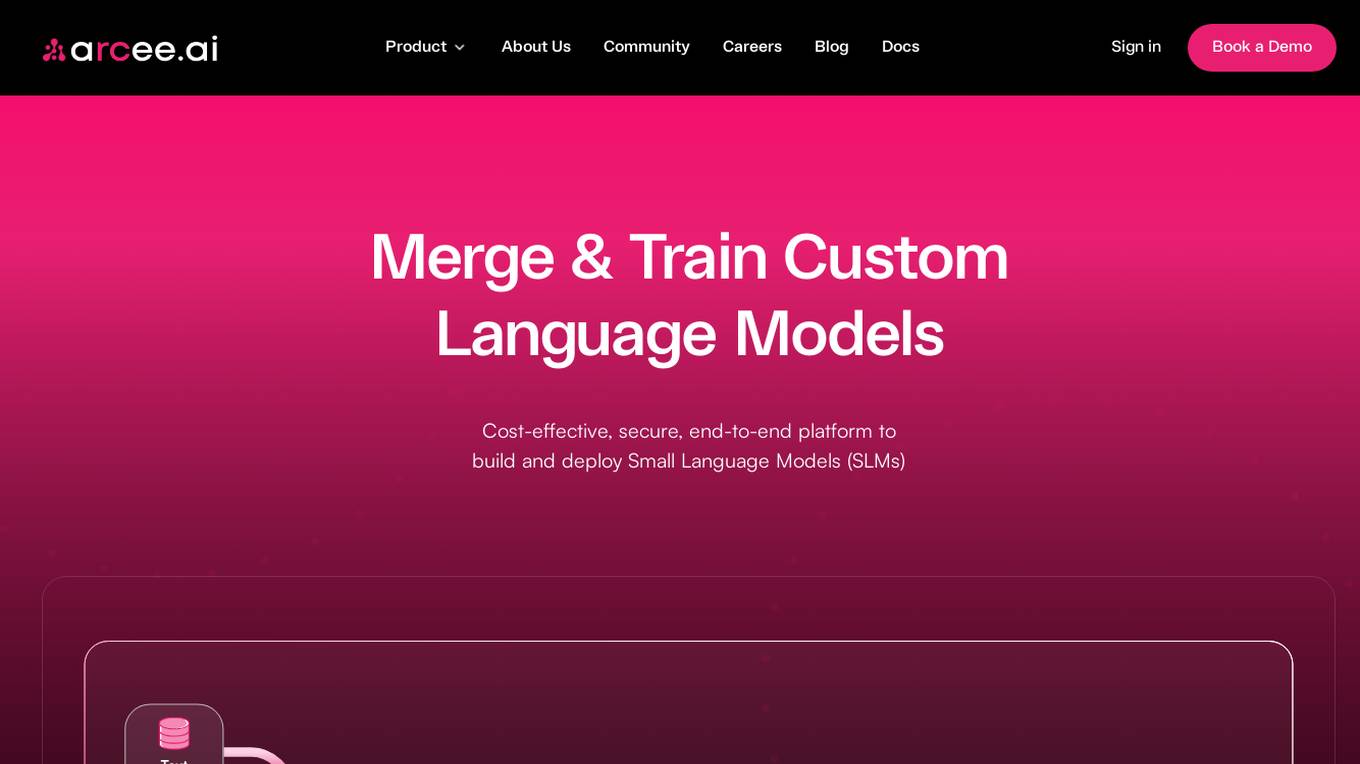
Arcee AI
Arcee AI is a platform that offers a cost-effective, secure, end-to-end solution for building and deploying Small Language Models (SLMs). It allows users to merge and train custom language models by leveraging open source models and their own data. The platform is known for its Model Merging technique, which combines the power of pre-trained Large Language Models (LLMs) with user-specific data to create high-performing models across various industries.
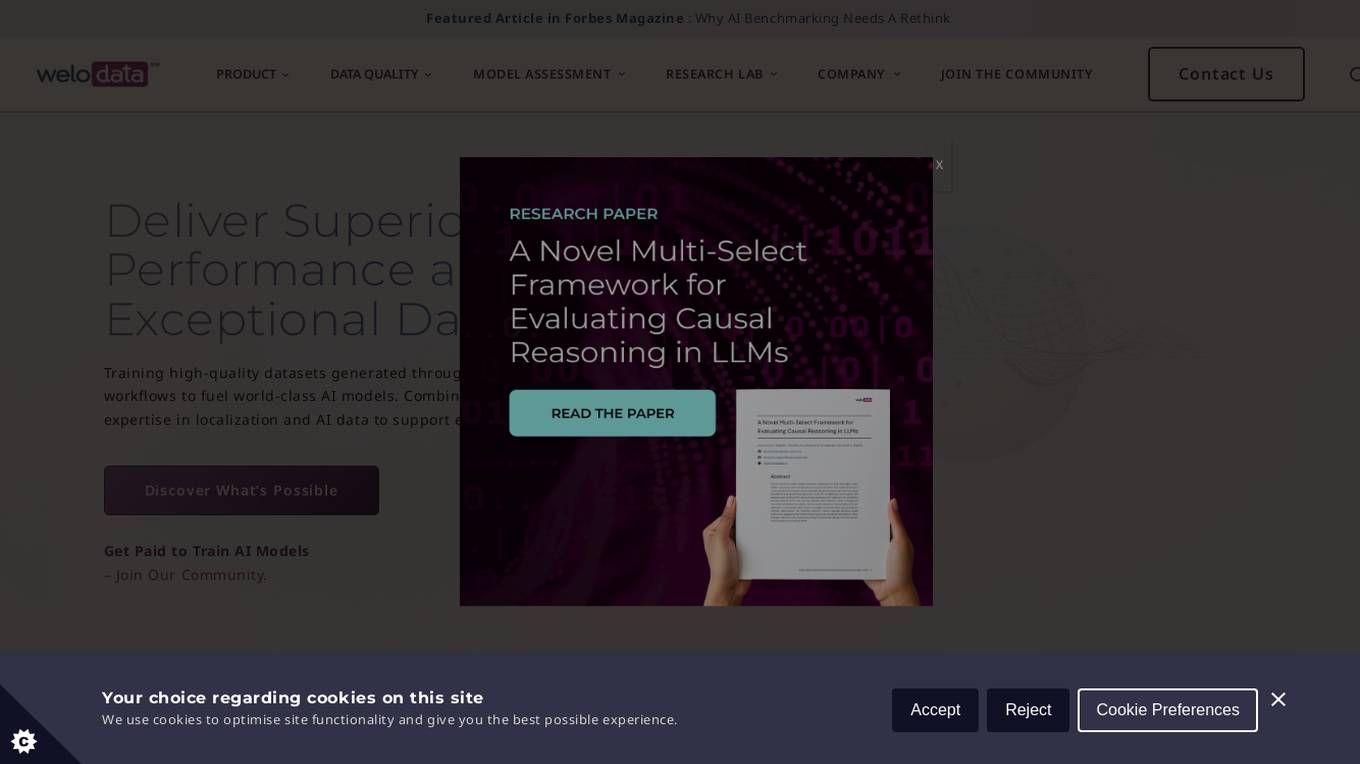
Welo Data
Welo Data is an AI tool that specializes in AI benchmarking, model assessment, and training high-quality datasets for AI models. The platform offers services such as supervised fine tuning, reinforcement learning with human feedback, data generation, expert evaluations, and data quality framework to support the development of world-class AI models. With over 27 years of experience, Welo Data combines language expertise and AI data to deliver exceptional training and performance evaluation solutions.

Sapien.io
Sapien.io is a decentralized data foundry that offers data labeling services powered by a decentralized workforce and gamified platform. The platform provides high-quality training data for large language models through a human-in-the-loop labeling process, enabling fine-tuning of datasets to build performant AI models. Sapien combines AI and human intelligence to collect and annotate various data types for any model, offering customized data collection and labeling models across industries.
1 - Open Source AI Tools
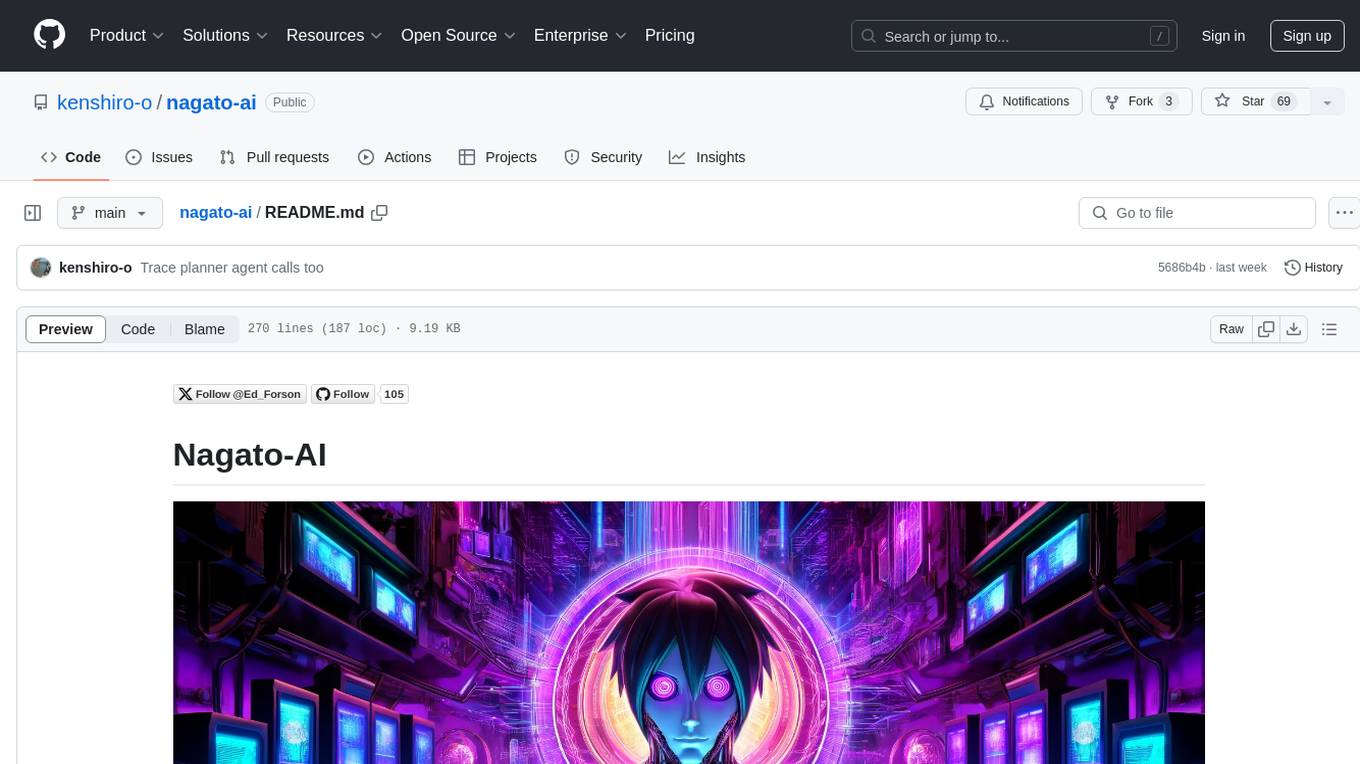
nagato-ai
Nagato-AI is an intuitive AI Agent library that supports multiple LLMs including OpenAI's GPT, Anthropic's Claude, Google's Gemini, and Groq LLMs. Users can create agents from these models and combine them to build an effective AI Agent system. The library is named after the powerful ninja Nagato from the anime Naruto, who can control multiple bodies with different abilities. Nagato-AI acts as a linchpin to summon and coordinate AI Agents for specific missions. It provides flexibility in programming and supports tools like Coordinator, Researcher, Critic agents, and HumanConfirmInputTool.
20 - OpenAI Gpts
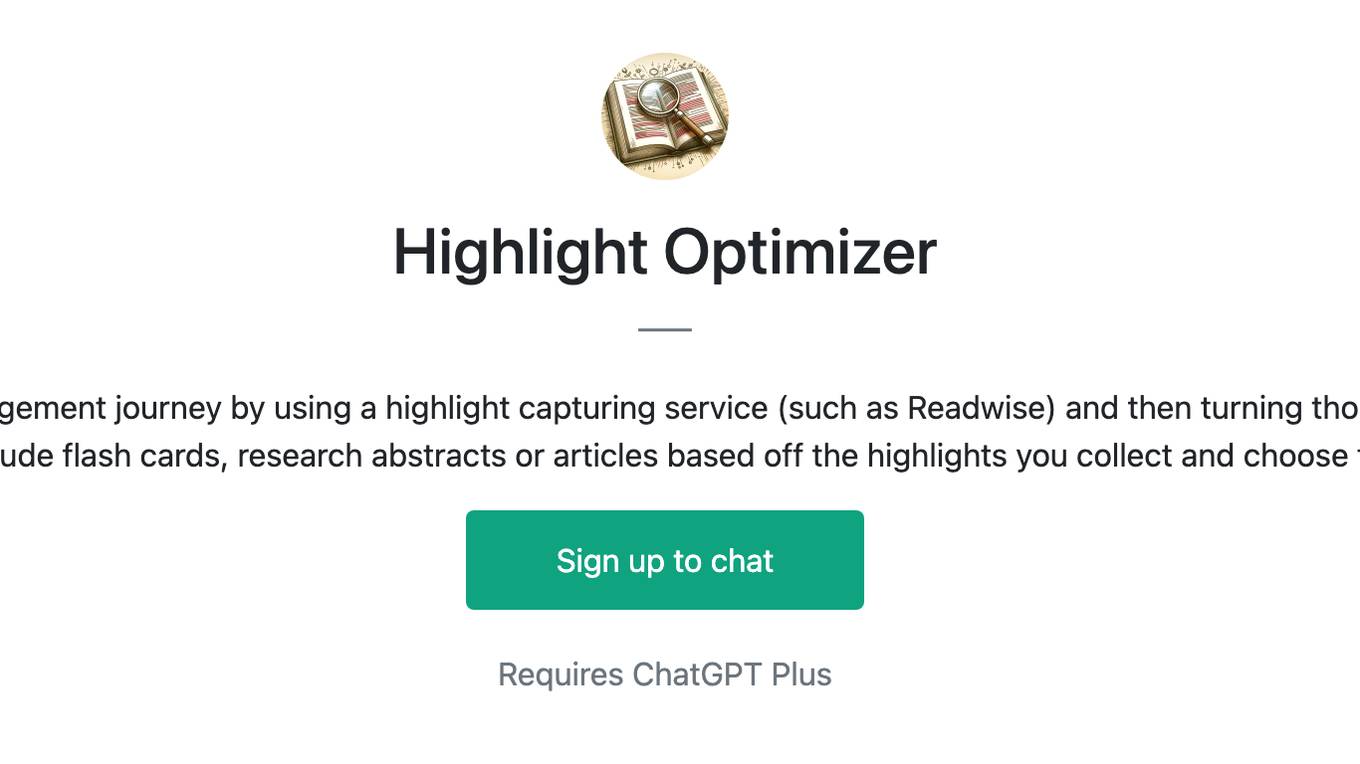
Highlight Optimizer
Supercharge your personal knowledge management journey by using a highlight capturing service (such as Readwise) and then turning those highlights into useful knowledge assets. Examples include flash cards, research abstracts or articles based off the highlights you collect and choose to combine.
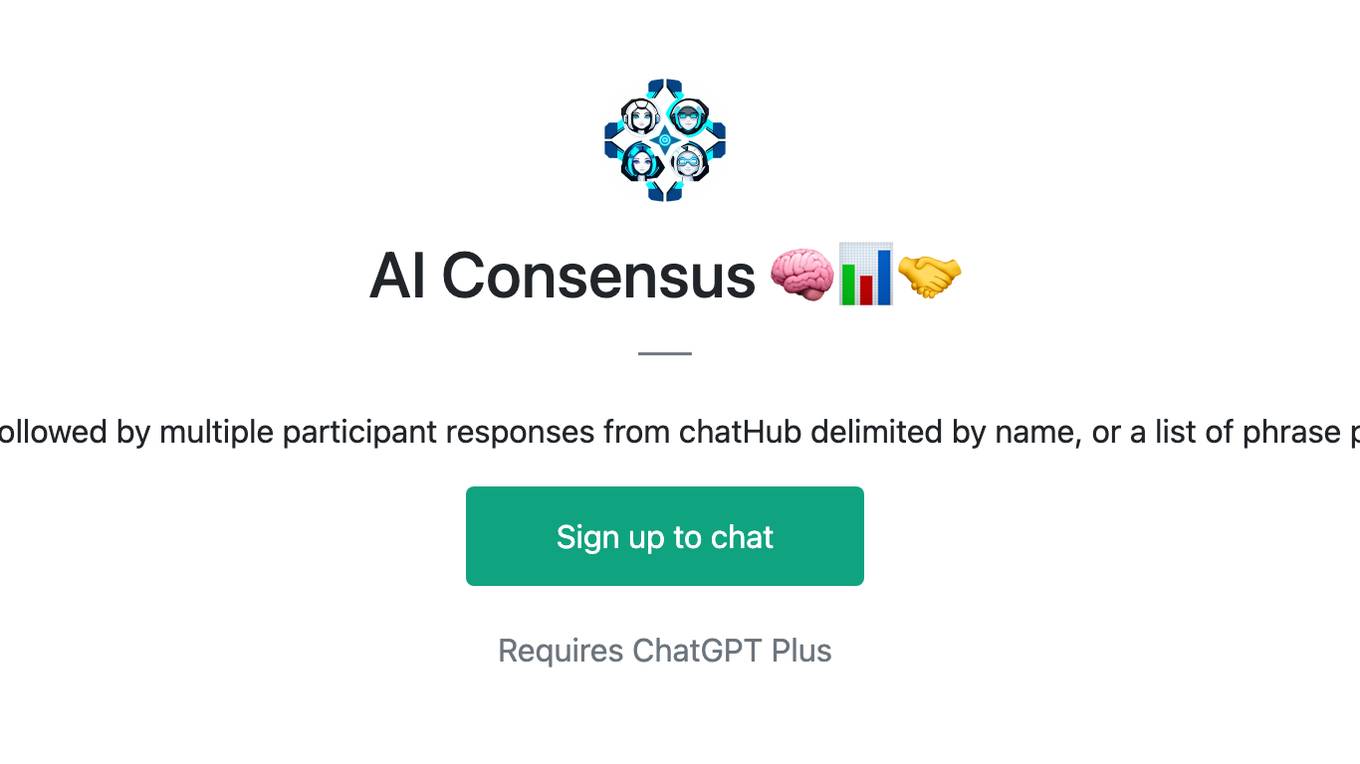
AI Consensus 🧠📊🤝
Provide a prompt followed by multiple participant responses from chatHub delimited by name, or a list of phrase pairs to combine.
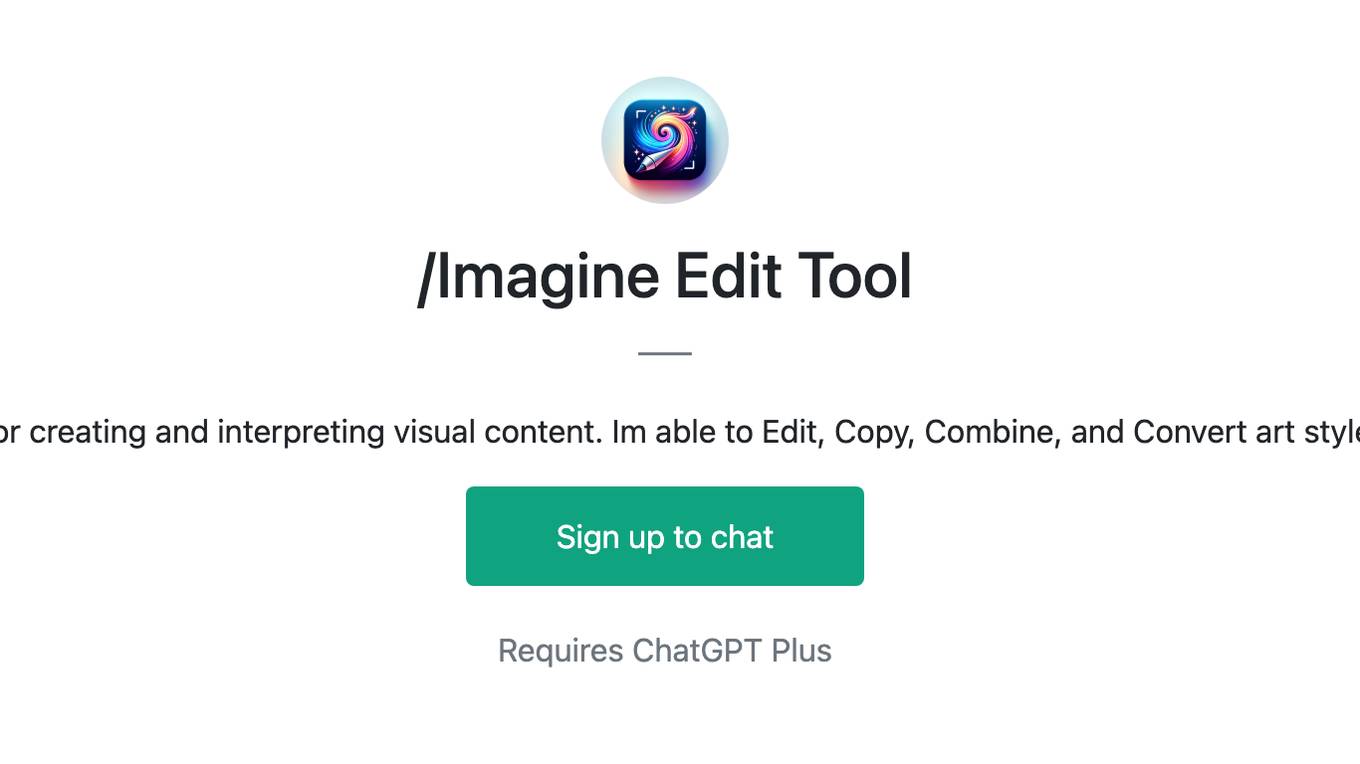
/Imagine Edit Tool
Advanced AI for creating and interpreting visual content. Im able to Edit, Copy, Combine, and Convert art styles/mediums.
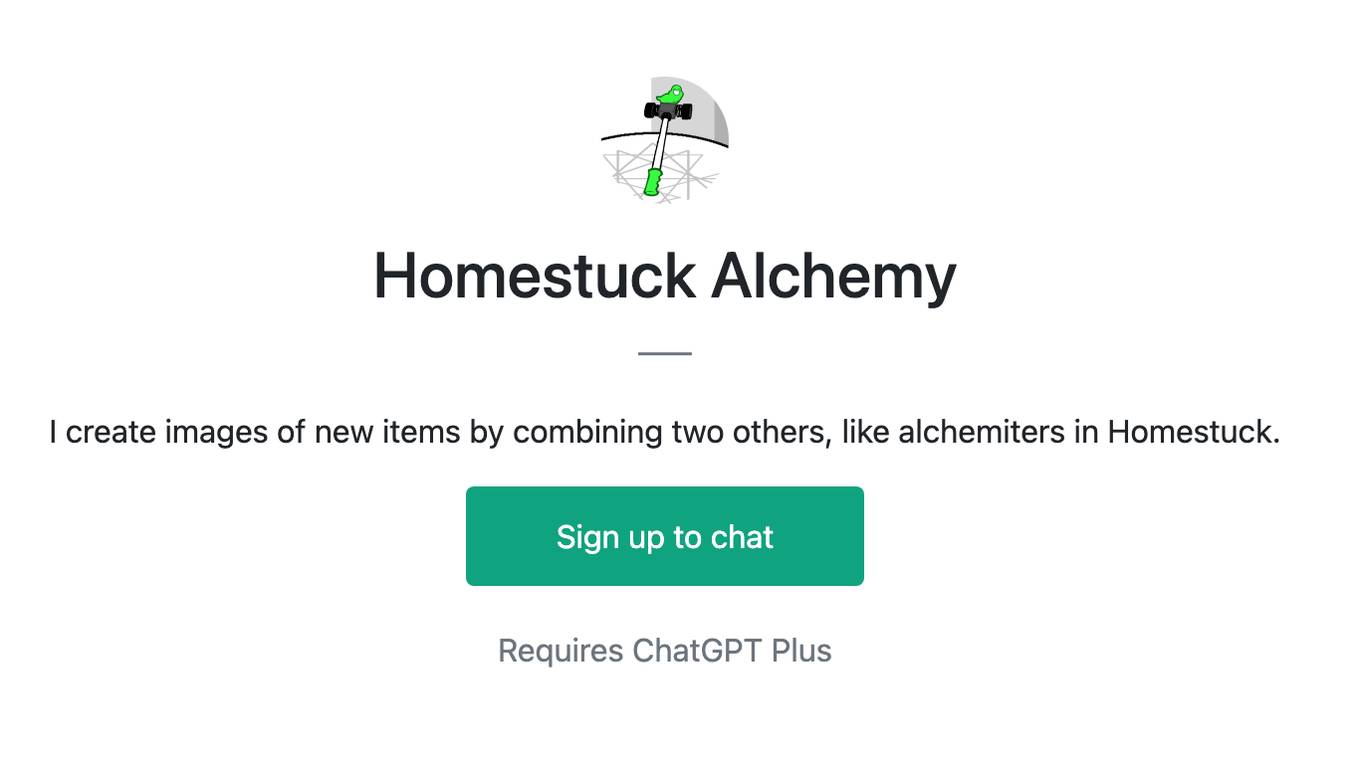
Homestuck Alchemy
I create images of new items by combining two others, like alchemiters in Homestuck.
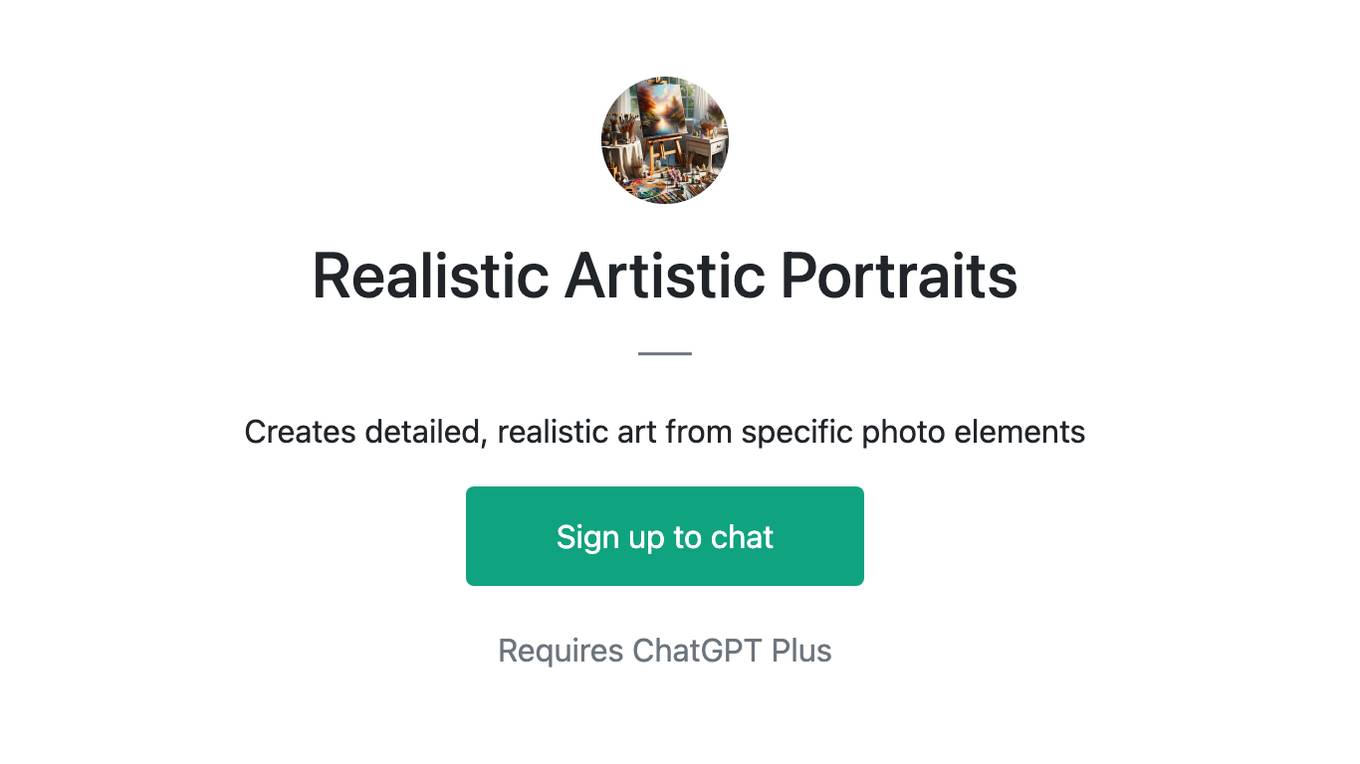
Realistic Artistic Portraits
Creates detailed, realistic art from specific photo elements
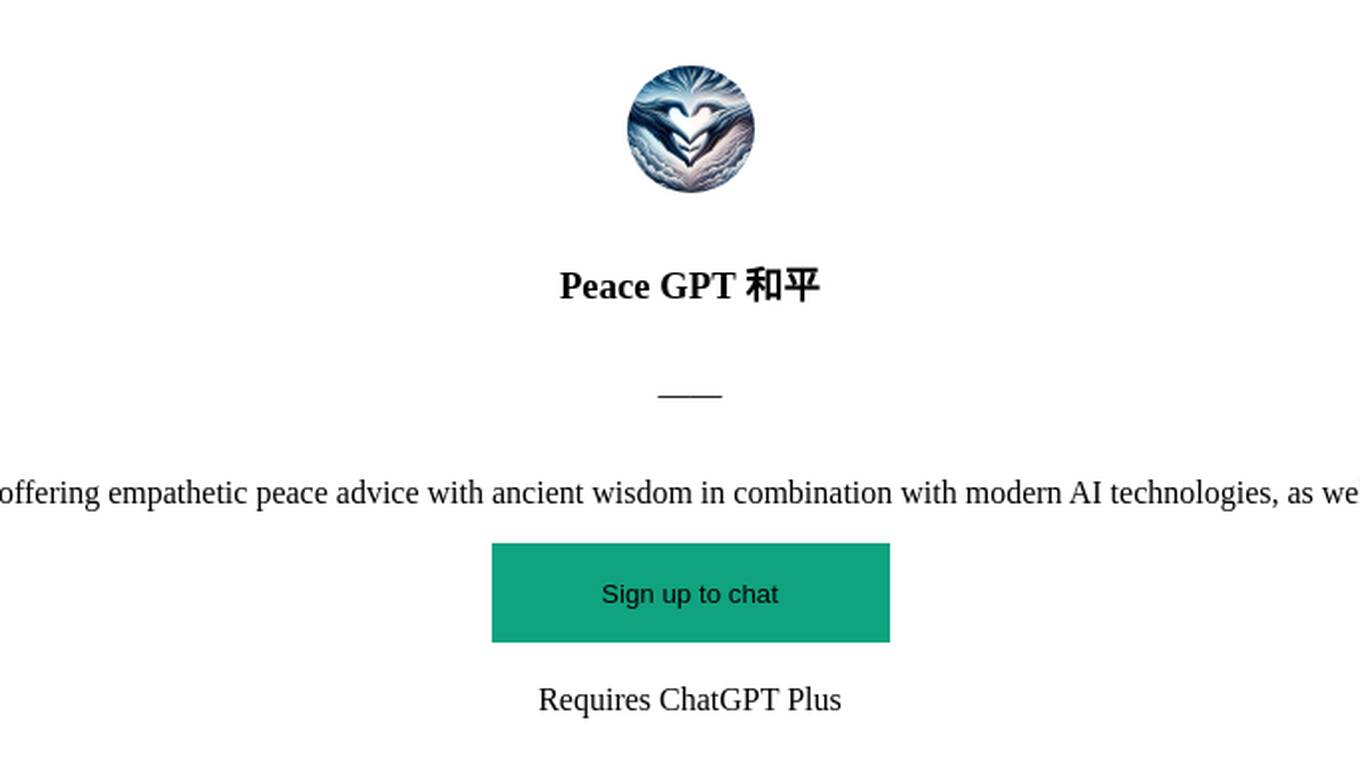
Peace GPT 和平
Expert in transforming conflict into harmony and offering empathetic peace advice with ancient wisdom in combination with modern AI technologies, as well as with the Nonflict way of Million Peacemakers.
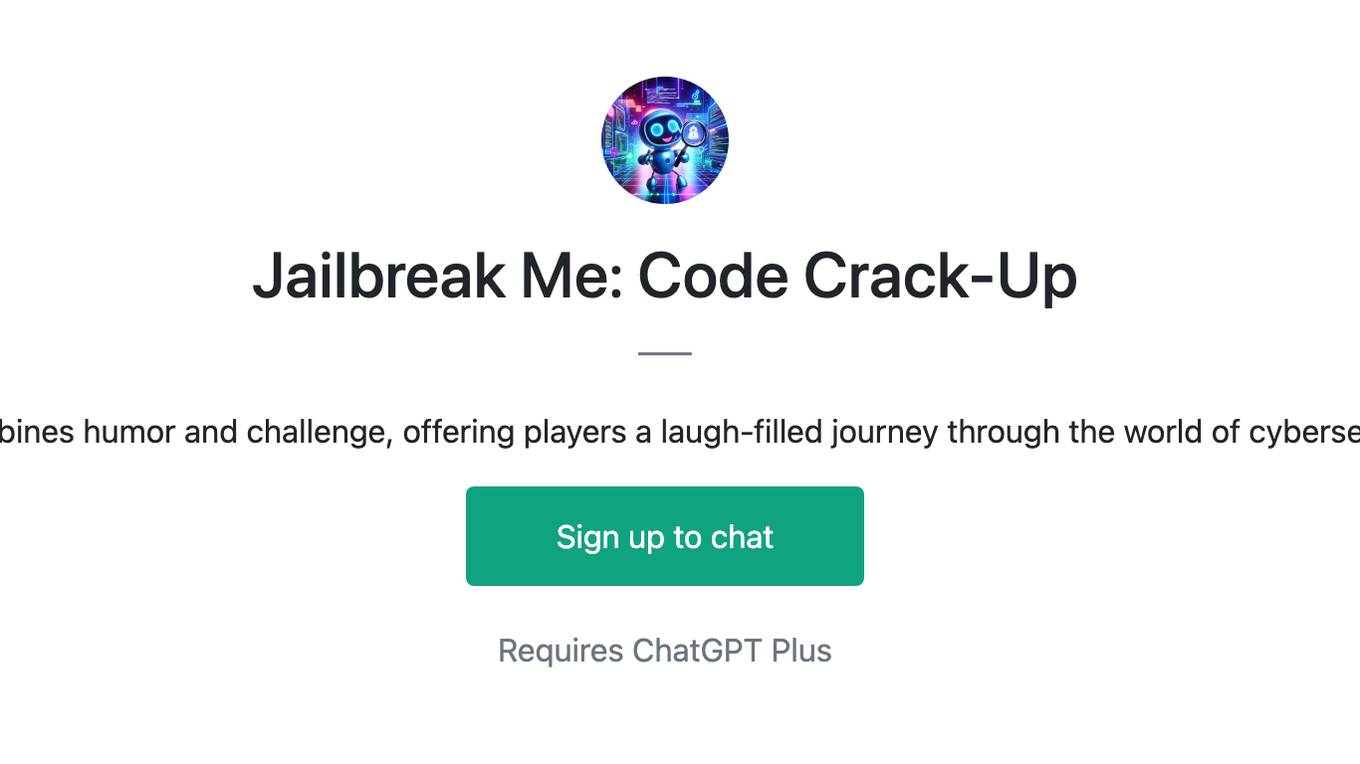
Jailbreak Me: Code Crack-Up
This game combines humor and challenge, offering players a laugh-filled journey through the world of cybersecurity and AI.
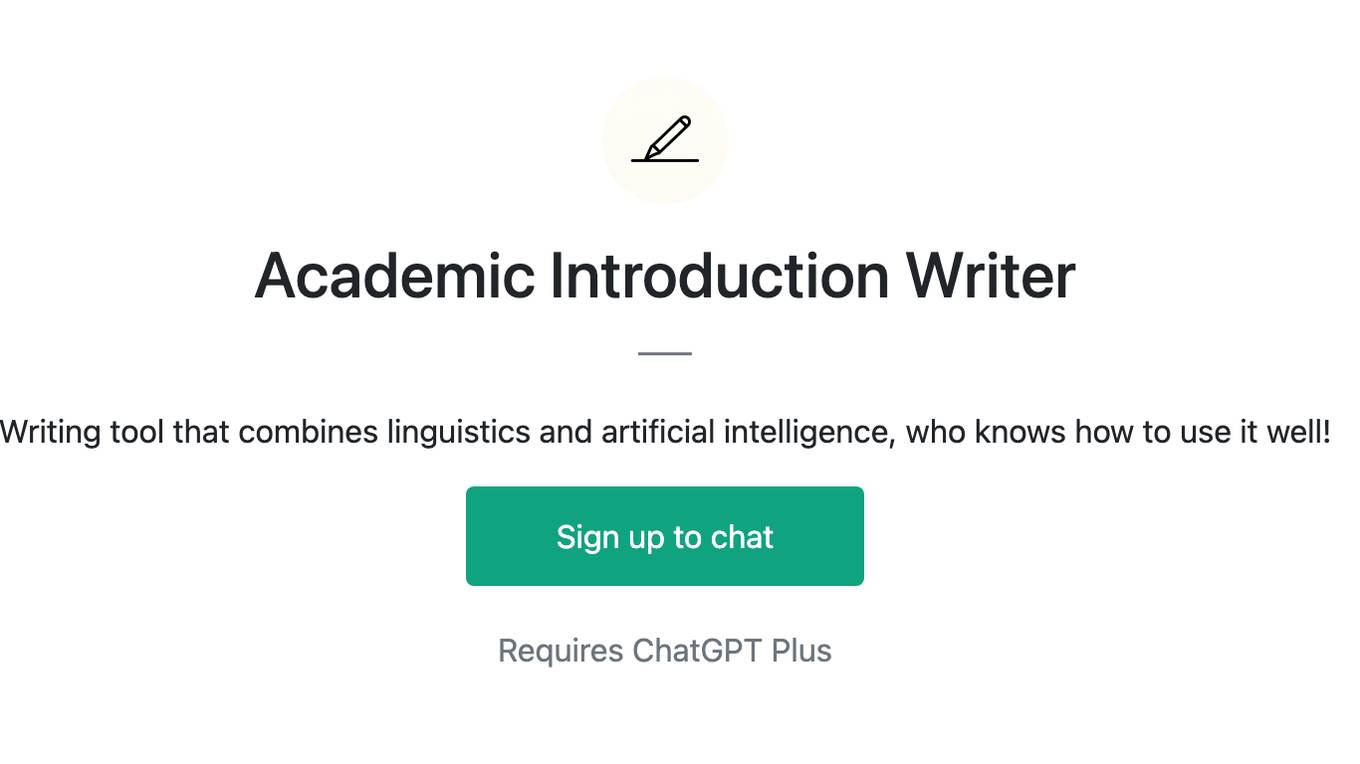
Academic Introduction Writer
Writing tool that combines linguistics and artificial intelligence, who knows how to use it well!
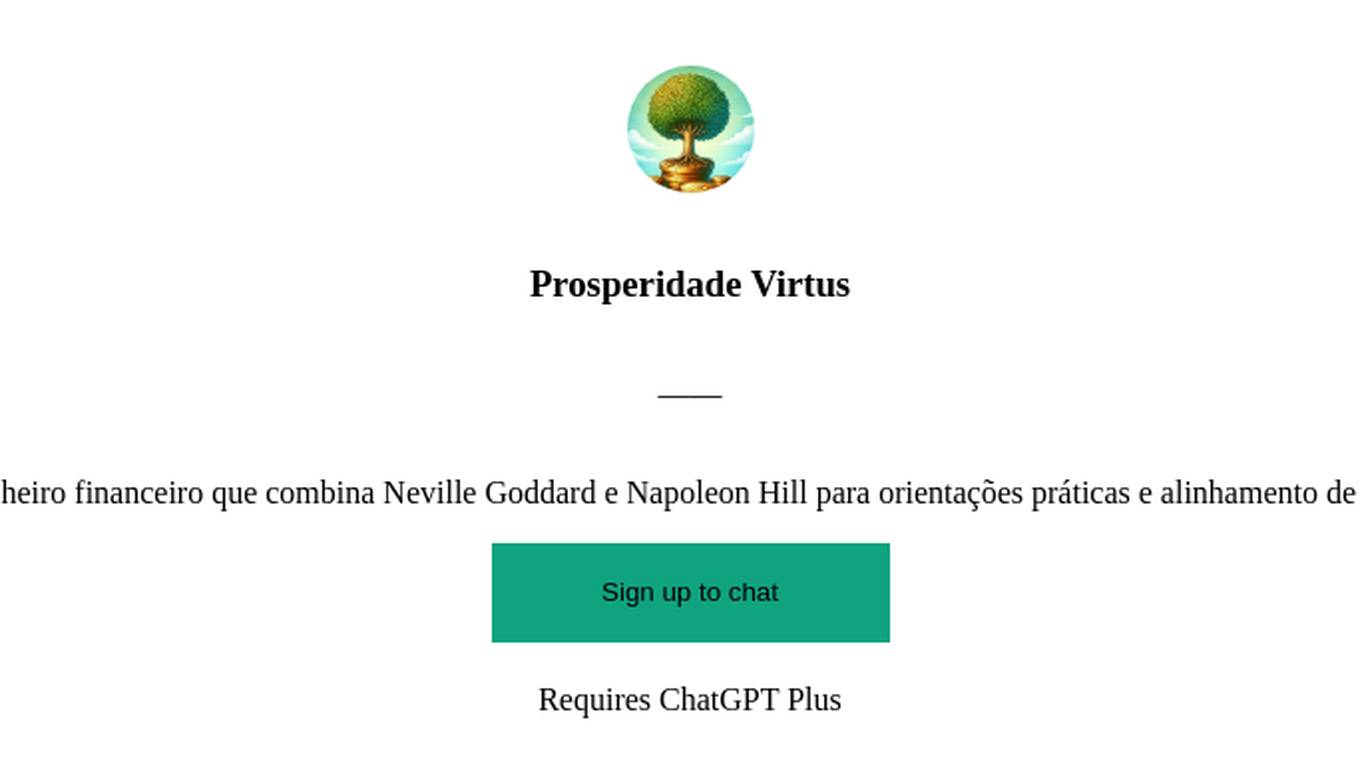
Prosperidade Virtus
Conselheiro financeiro que combina Neville Goddard e Napoleon Hill para orientações práticas e alinhamento de crenças.
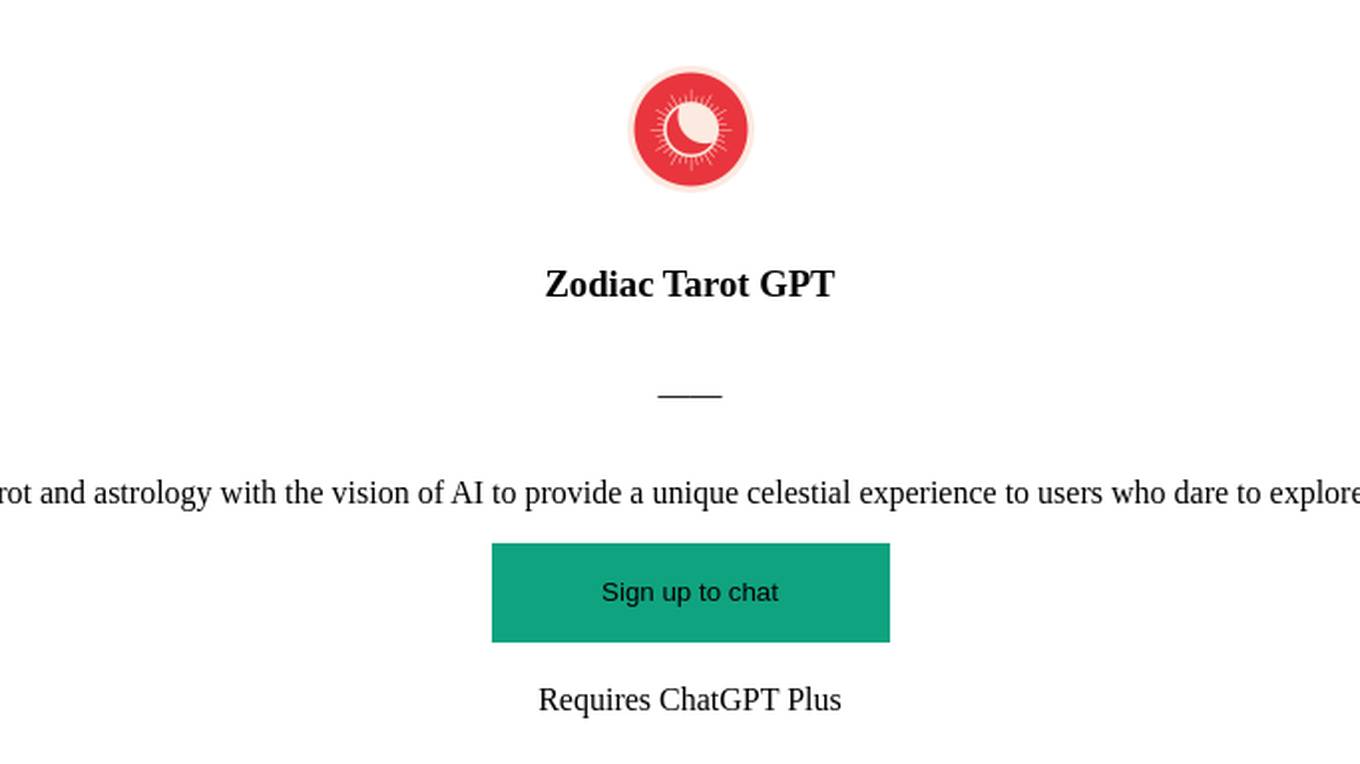
Zodiac Tarot GPT
A tool that combines the ancient art of tarot and astrology with the vision of AI to provide a unique celestial experience to users who dare to explore their destiny and obtain cosmic guidance.

Crypto Trading GPT Partner
The enhanced Crypto Trading Journal now combines empathetic conversation with technical analysis. Try to say hi to your faithful trading partner to start your trading journal here.
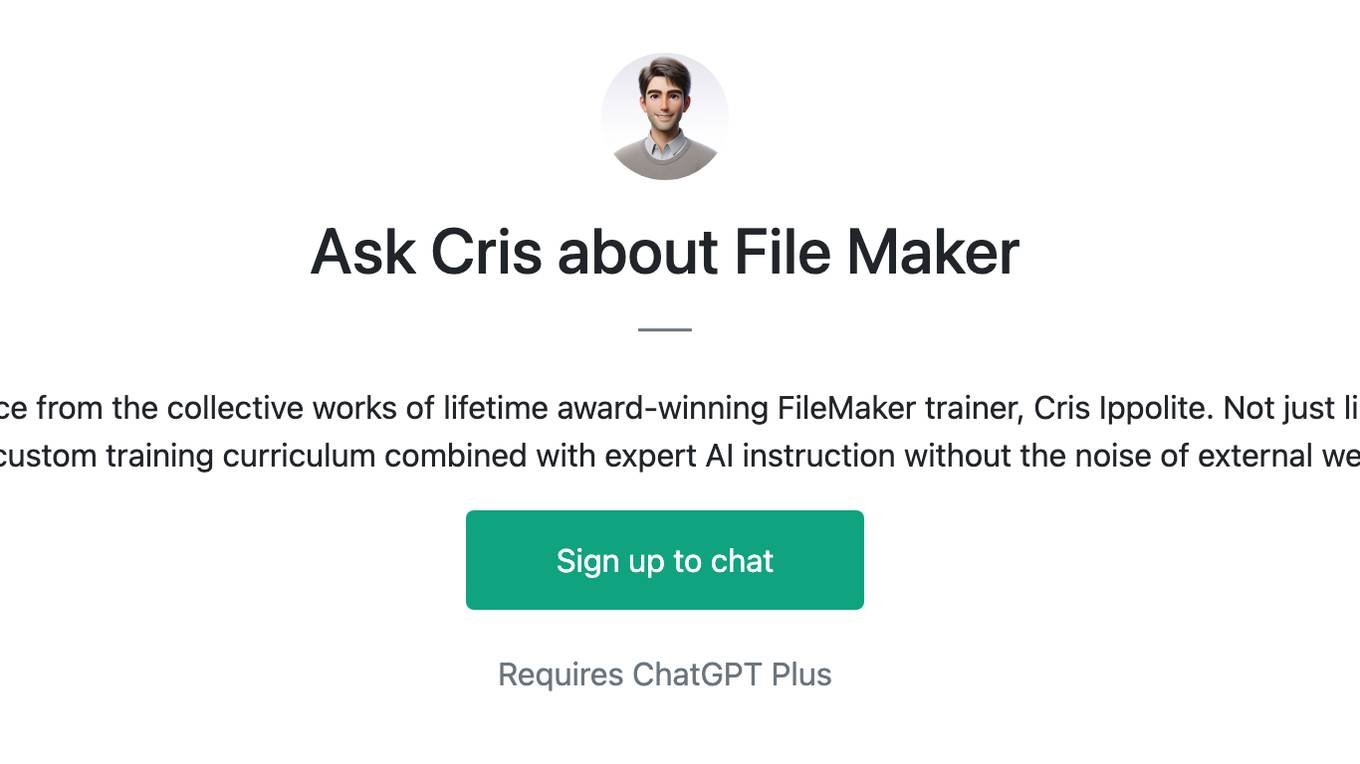
Ask Cris about File Maker
An experiment in personal FileMaker guidance from the collective works of lifetime award-winning FileMaker trainer, Cris Ippolite. Not just links to resources, but direct access to 20+ years of custom training curriculum combined with expert AI instruction without the noise of external web links.
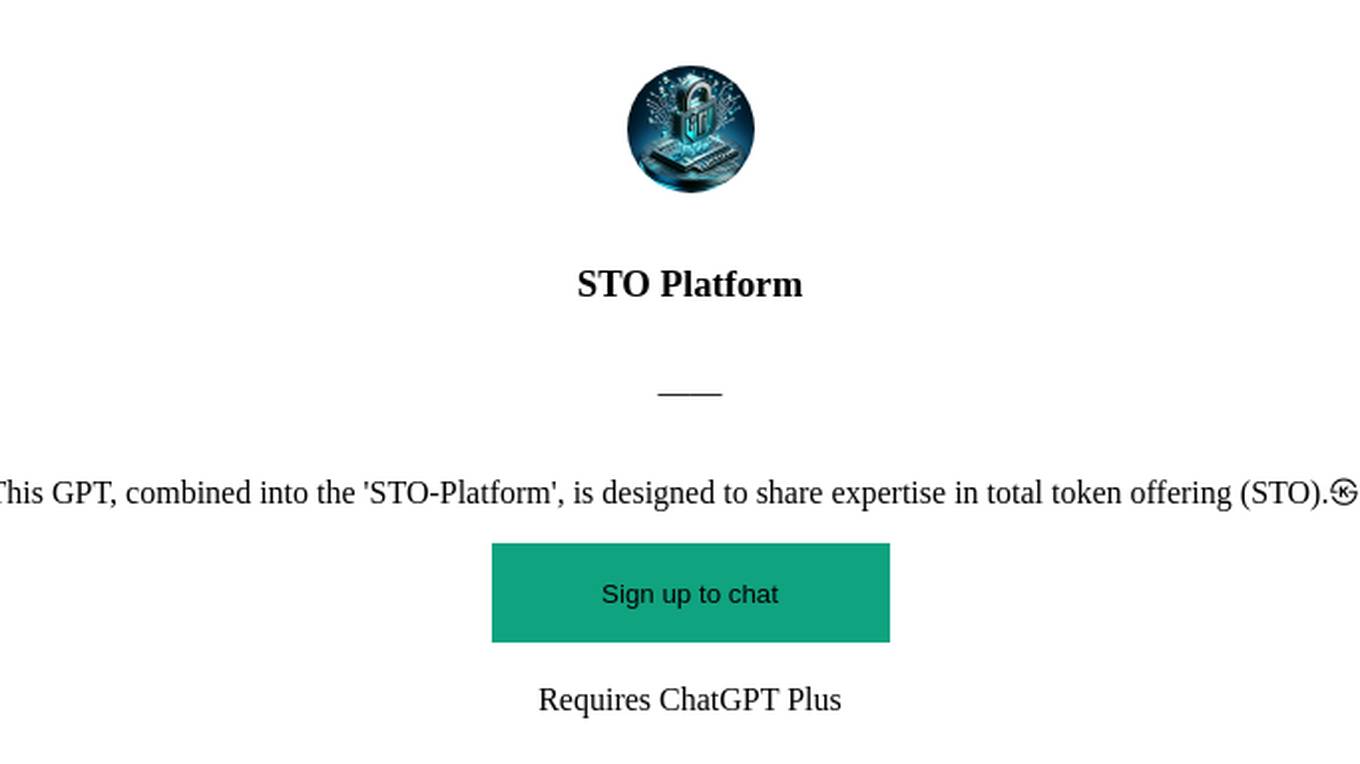
STO Platform
This GPT, combined into the 'STO-Platform', is designed to share expertise in total token offering (STO).㉿㉿
